




(Founded in 1920)
David Finkelstein
President
Annette van de Kamp-Wright
Editor
Richard Busse
Will Fischer
Creative Director
Claire Endelman
Sales Director
Lori Kooper-Schwarz
Assistant Editor
Sam Kricsfeld
Digital support
Mary Bachteler
Accounting
Jewish Press Board
David Finkelstein, President; Margie Gutnik, Ex-Officio; Helen Epstein, Andrea Erlich, Ally Freeman, Dana Gonzales, Mary Sue Grossman, Hailey Krueger, Chuck Lucoff, Larry Ring, Melissa Shrago, Suzy Sheldon and Stewart Winograd.
The mission of the Jewish Federation of Omaha is to build and sustain a strong and vibrant Omaha Jewish Community and to support Jews in Israel and around the world. Agencies of the JFO are: Institute for Holocaust Education, Jewish Community Relations Council, Jewish Community Center, Jewish Social Services, Nebraska Jewish Historical Society and the Jewish Press Guidelines and highlights of the Jewish Press, including front page stories and announcements, can be found online at: www.jewishomaha.org; click on ‘Jewish Press.’ Editorials express the view of the writer and are not necessarily representative of the views of the Jewish Press Board of Directors, the Jewish Federation of Omaha Board of Directors, or the Omaha Jewish community as a whole. The Jewish Press reserves the right to edit signed letters and articles for space and content. The Jewish Press is not responsible for the Kashrut of any product or establishment.
Editorial
The Jewish Press is an agency of the Jewish Federation of Omaha. Deadline for copy, ads and photos is: Thursday, 9 a.m., eight days prior to publication. E-mail editorial material and photos to: avandekamp@jewishomaha.org ; send ads (in TIF or PDF format) to: rbusse@jewishomaha.org
Letters to the Editor Guidelines
The Jewish Press welcomes Letters to the Editor. They may be sent via regular mail to: The Jewish Press, 333 So. 132 St., Omaha, NE 68154; via fax: 1.402.334.5422 or via e-mail to the Editor at: avandekamp@jewishomaha.org.
Letters should be no longer than 250 words and must be single-spaced typed, not hand-written. Published letters should be confined to opinions and comments on articles or events.
News items should not be submitted and printed as a “Letter to the Editor.”
The Editor may edit letters for content and space restrictions. Letters may be published without giving an opposing view. Information shall be verified before printing. All letters must be signed by the writer. The Jewish Press will not publish letters that appear to be part of an organized campaign, nor letters copied from the Internet. No letters should be published from candidates running for office, but others may write on their behalf.
Letters of thanks should be confined to commending an institution for a program, project or event, rather than personally thanking paid staff, unless the writer chooses to turn the “Letter to the Editor” into a paid personal ad or a news article about the event, project or program which the professional staff supervised. For information, contact Annette van de Kamp-Wright, Jewish Press Editor, 402.334.6450.
Postal
The Jewish Press (USPS 275620) is published weekly (except for the first week of January and July) on Friday for $40 per calendar year U.S.; $80 foreign, by the Jewish Federation of Omaha. Phone: 402.334.6448; FAX: 402.334.5422.
Periodical postage paid at Omaha, NE. POSTMASTER: Send address changes to: The Jewish Press, 333 So. 132 St., Omaha, NE 68154-2198 or email to: jpress@jewishomaha.org

earning is a life-long habit, they say, and I would argue teaching is as well. Of course, much of it happens within various classrooms, from preschool to PhD programs. But then, there’s life.
And the lessons we learn in life are, in many ways, just as important. And what about all the classes we take outside of formal education? We learn to walk, talk and dance, we learn to pray and chant, we learn to swim and we learn how to make the world a little better. If our minds are open, we can learn something from every human interaction, every day.
When we really started to think about this year’s Passover topic, it turned out that maybe it was a bit too broad. We could, after all, tell numerous stories about community members who teach within the actual classroom alone. But since we also wanted to talk about education beyond that classroom, we decided to do a bit of everything. From the swim instructor to the Israeli Shlichim, from the Day School to Hebrew school memories, from adult education to the way the ELC teaches Passover (that last one is my favorite, by the way), education is everywhere.
As always, there are many more stories to tell; this is in no way a comprehensive collection of everyone in our community who is a teacher of some sort. But we hope that won’t stop you from enjoying this issue as much as we enjoyed creating it!
Since we’re on the topic, here’s what the Jewish Press has taught me over the past 15 years.
This community is incredible, for a whole host of reasons. Allow me to highlight just what this community means to us here at the Press office.
Where else would one find support for a weekly newspaper that has such an intimate, narrow focus? This paper is here just for us, the Jewish community of Omaha (even though we don’t all live in Omaha), and we are small compared to many other places in the diaspora. At the same time, the era of newspapers is coming to an end, and we could never afford to continue this paper without tremendous community support.
That support comes from the JFO Annual Campaign, through endowments and grants, with help from The Foundation and individual donors like you. It also comes through loyalty from readers, subscriptions from outside Omaha, from volunteers and the JFO board of directors, through colleagues both under the JFO umbrella and at the synagogues and other Jewish organizations. Our amazing president, Nancy Schlessinger, and the Jewish Press advisory board under the expert guidance of David Finkelstein, and our volunteer proofreaders: Pam Friedlander, Les Kay, Margaret Kirkeby, Ann Rosenblatt, Sibby Wolfson and Isa Wright. In addition, it comes from the amazing stories you all continue to share with us (thank you, Gabby, Hal and Steve!). It comes from random and not-so-random visits you all make to our office, every phone call, every email, every contact through which we maintain our relationship. Even when you call to complain, it reminds us how much we all care.
I want to thank our outgoing Creative Director, Richard Busse, for 20+ years of dedication to the Jewish Press (I’ll save the schmaltz for later). Later this year, Richard will be enjoying his well-deserved retirement, and don’t worry; we’ll let everyone know when the goodbye party is. Thank you to our Assistant Editor, Lori Kooper-Schwarz, for oh-so many things, but mostly for being you. Don’t leave. To our sales director, Claire Endelman: you have possibly the most challenging job, as print sales are difficult in 2025, but I hope in the next year also the most exciting job, because we have many plans and ideas. Sam, thank you for helping with the weekly newsletter—we still can’t do without you. Finally, our incoming Creative Director Will Fischer: welcome to the circus! We think you are going to like it here, and we’re happy to have you.
So here it is, another Pesach, another special issue. We hope your Passover is wonderful, meaningful, and spent in the company of loved ones. Thank you for reading,
Chag Pesach kasher ve’sameach,
ANNETTE VAN DE KAMP-WRIGHT
STEVE RIEKES
The impact of Central High School on the Jewish community of Omaha and vice versa has been enormous. From prior to World War I to the late 1960s, almost all of Omaha’s Jewish high school students went to Central.
In terms of location, the Jewish Community Center (JCC), opened in 1925 at 19th and Dodge, across the street from Central. Prior to 1950, a considerable number of Jews lived within walking distance. A few blocks north of downtown Omaha was an area filled with synagogues, kosher butcher shops, bakeries, grocery stores, etc.
So popular was the JCC, in a sense it was worn out and overused from the moment it opened. While the JCC was popular with the entire Jewish community, Central High’s Jewish students took full advantage of it. They held their meetings there. They used its library, athletic facilities, stage, and ballroom.
Academic standards have always been of importance to the Jewish people. That historical characteristic, combined with the excellent standards of the administrative and teaching faculty of Central, joined to create an extremely high level of academic achievement. Central was regarded as among the top high schools in the nation. It produced two Nobel Prize winners: one for economics and the other was for chemistry. An equivalent prize was awarded to Saul Kripke for his work in symbolic logic.

Central students have been regularly admitted to America’s most prestigious universities. Its graduates have been members of



Massage Chairs

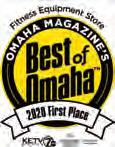



profession, talent, and meaningful human enterprises. Just to mention a few, there have been artists, educators, entrepreneurs, civil servants and
administrators of every sort, soldiers, sailors, inventors, doctors, lawyers, actors, authors, musicians, and many more.
It would be impossible to list all of the careers in which Central graduates have assumed prominence or to catalog the influence of their leadership.
Since the 1970s, the demography of Omaha’s Jewish community has drastically shifted. Jewish students now live in at least five different school districts, but there are still Jewish students at Central and among them, a number are very high achievers.
Today, while the land at 19th and Dodge, the original location of the JCC, is now an empty parking lot, important memories remain. The influence of many Central graduates continues to impact Omaha, and it will always retain a special place in Omaha’s history and in its Jewish community.

GABBY BLAIR
When starting her undergraduate career at The University of Nebraska-Lincoln, Lillian Cohen could not have imagined what the next 4 years would hold. “As a freshman at UNL, I was eager to make new friends, join a sorority and succeed in my classes-the usual freshman agenda,” she shares. Growing up attending Friedel Jewish Day School and Brownell Talbot, Cohen perhaps took for granted the built in accommodations her schooling provided and admits that seeking to join Hillel was not something on her mind during her first year of college. That changed early in her sophomore year when the Communication Sciences and Disorders/SpeechLanguage Pathology major was confronted by her otherness.
“My chemistry professor had scheduled our first exam for Yom Kippur,” she recalls. “When I requested an alternate accommodation and explained why, I was taken aback by his disapproving response.” This moment was one of isolation and self reflection for Cohen. “None of my campus friends at the time were Jewish and no one really understood why this bothered me. I realized that no matter how nice people were or how much I tried to blend in with them, it was inevitable that I would stand out. It
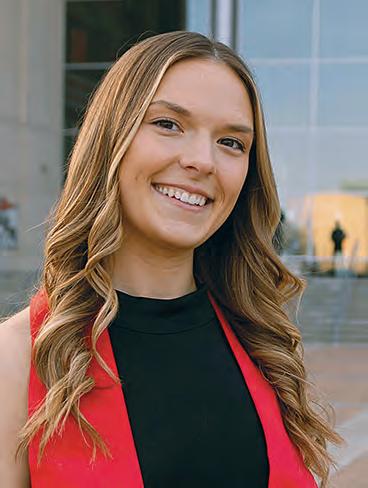
was this experience that made me realize the importance of becoming involved with a Jewish community on campus.”
Shortly after this incident, Cohen attended a Hillel Hanukkah event. Though the gathering was small, she couldn’t deny the sense of home she felt being surrounded by other Jewish students. She didn’t have to explain things or be the token spokesperson for an entire religion; it was a comfort to not feel isolated or different. The following year she was inspired to run for Hillel Board and soon found herself elected as President.
While the organization was struggling to regain its footing after Covid, her unwavering dedication to strengthening and growing not just the campus community, but herself, would prove instrumental for what was to come.
During her tenure, Hillel filled all five board positions, and increased its visibility on campus by promoting the resumption of in-person events. They handed out ‘Go Big Red’ shirts and stickers (written in Hebrew) at campus fairs. They collaborated with Sivan, the JFO sponsored community Shlicha at the time and found friendly off-campus venues that would permit them to bring in kosher food for dinners, bypassing university rules regarding catering contracts. “We also joined with Lincoln’s South Street Temple to attend Friday night services and held a Shabbat dinner which saw nearly fifty people in attendance. This led to increased attendance at weekly services by students and some, including myself, began helping with Sunday School. We weren’t just rebuilding Hillel; we were igniting a sense of community and connection among our Jewish students and the greater community,” she shares proudly. Cohen continues. “This was just the beginning of our expanding connections, See Lillian Cohen page A6
STEVE RIEKES
Distinctly different from other categories affecting the lives of Jewish high school students at Central was participation in R.O.T.C. (Reserve Officers’ Training Corps).







With the exception of involvement in certain athletic activities, every male student was required to participate in R.O.T.C. This requirement covered the student’s entire freshman year and half of his sophomore year. At the end of their three semesters, a student could drop out. Many, but not all, did. For those who remained, there was a unique perk if they went to Central. A senior could be eligible to participate in a costumed pageant in the Aksarben Ball. The ball was the pinnacle of Omaha’s high society. In the mythical “Kingdom of Quivera,” a King and Queen would be crowned at the Aksarben colosseum. The Omaha Symphony Orchestra provided music. It was televised to a regional audience.

Several dozen Central R.O.T.C. seniors would be chosen by the ball committee to march and drill with their swords as either a King’s or Queen’s hassar. The selection was based on physical appearance – primarily the student’s height.
As soon as I could, I opted out of R.O.T.C. I hated the itchy and woolly uniform I had to wear three times a week. I was bored by the endless need to stand.
On the other hand, many remained with the program, including two of my best friends, Bernard and Bruce Bloom. For years they practiced their drills. They got up early many mornings to march and stand at attention. Alas, for them and despite their devotion, they did not measure up to be a hassar. The ball committee decided they were too short.
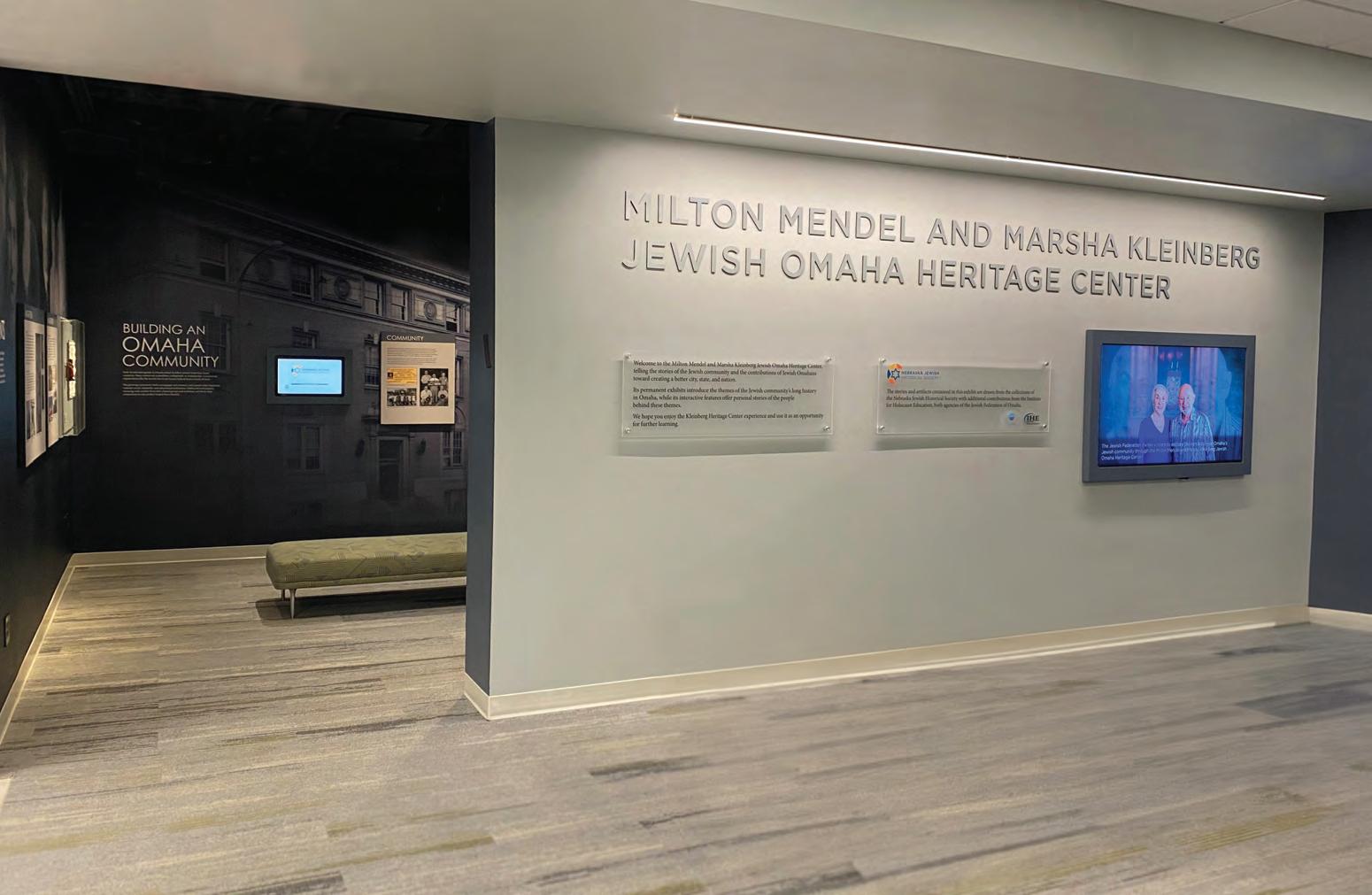



A number of years ago, my wife Margo, my daughter Suzanne, my son Ari and I went to New York. Our purpose was to assist Suzanne in moving into her dorm at New York University Law School. Suzanne had just graduated from Tulane University in New Orleans.
An Omaha friend, Joe Kirshenbaum, recommended that during our visit we go to Sammy’s Roumanian restaurant, located in New York’s lower east side. At one time, this area had been home to a large number of Jewish immigrants from eastern Europe.
Going to this restaurant turned out to be a unique experience. Jewish music, song, and dance filled the restaurant. Waiters cracked jokes out loud. At each table there was a container for liquid schmaltz for the eventual chopped liver and other servings.
After a while, a man and a woman sat down at our table to visit with us. They said they were the owners of the restaurant. They
wanted to know where we were from and the purpose of our visit to New York. They were fascinated to know that there were Jews flourishing in Nebraska.
Later, they generously insisted that they drive us back to our hotel. On the way, they took us on a private tour of Manhattan. We thanked them for their exceptional hospitality.
Three years later, we returned to Sammy’s to celebrate Suzanne’s law school graduation.
This time our family was joined by Suzanne’s dorm roommate, Naomi, and her father, mother, and brother, all from Chicago. There was also Sam, Naomi’s fiancé, who was on his way to becoming a medical doctor.
While we were all having a very good time, Sam was nervous about moving to Chicago because he had never lived outside New York City. The waiters picked this up. They told him: “Chicago might not be so bad. After all, what if it had been a place like Omaha?”
See Sammy’s Roumanian page A6



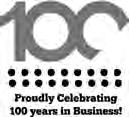



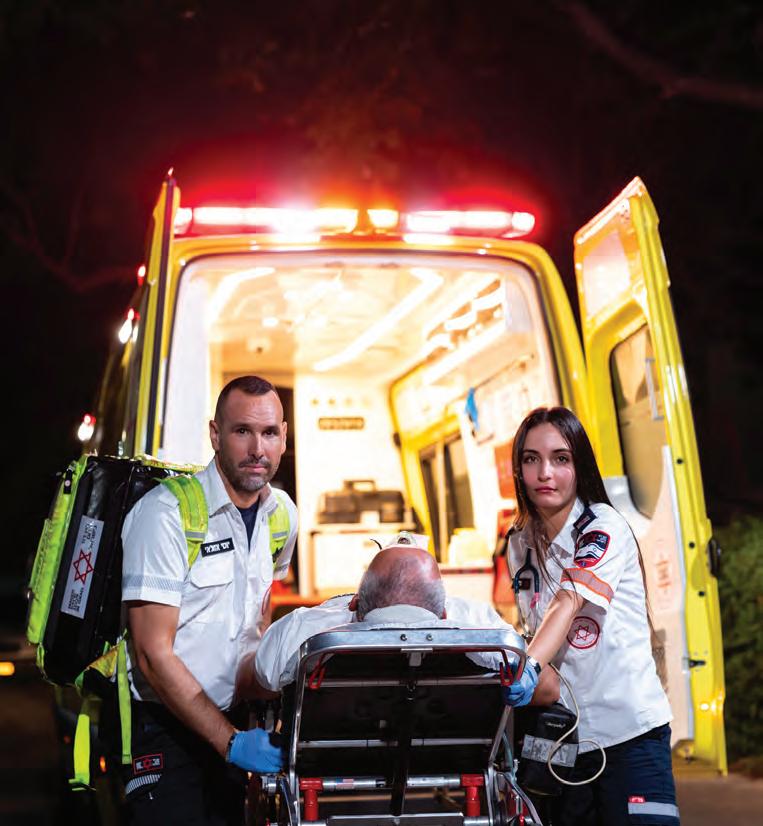









Continued from page A4 as we also collaborated with the Omaha Jewish community. Chabad of Omaha graciously hosted the beloved Latke Truck for Hanukkah and provided on-campus Passover Seders. Mushka and Rabbi Eli even traveled to Lincoln for a weekend to host our students, setting new attendance records for a UNL Shabbat dinner. With the Jewish Federation of Omaha, we planned a “sukkah hop,” and they generously provided us with a van and driver to transport students between Omaha and Lincoln. We made stops at all three synagogues in Omaha, as well as the JCC. This event was a big success, and helped to connect Hillel students with the Omaha Jewish community.”
Perhaps one of the most meaningful connections made during Lillian’s time on campus was that with University Dining. “We approached them to discuss our catering challenges, and they had an incredible idea: a kosher kitchen. It seemed like an unimaginable dream that might take years to come true, yet just one year later, under the leadership of Dr. Ari Kohen, we had a fully functioning kosher kitchen at UNL. This addition has allowed us to easily host Shabbat dinners and other events on campus, and we are grateful to Rabbi Maximo Shechet for making frequent trips to serve as the mashgiach. During Passover last year, University Dining even stocked the campus food markets with Kosher for Passover food. For the first time in history, UNL students were able to purchase matzah, matzah ball soup, and kosherfor-passover cookies, chips, as well as other desserts.”
semitism, and met with university leaders who gave us their unwavering support.
Cohen shares that in spite of everything, she never felt unsafe at UNL and instead, was ignited with the passion to instill strength and unity into our Jewish community on campus.

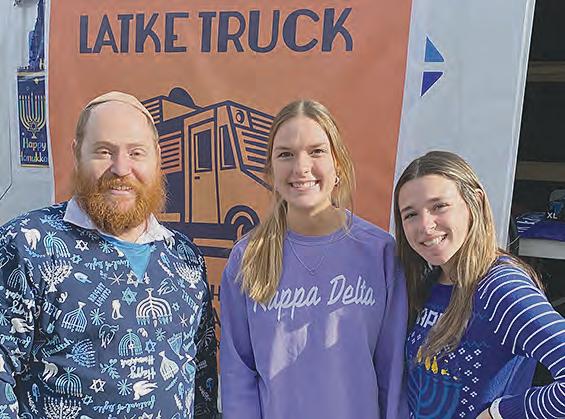
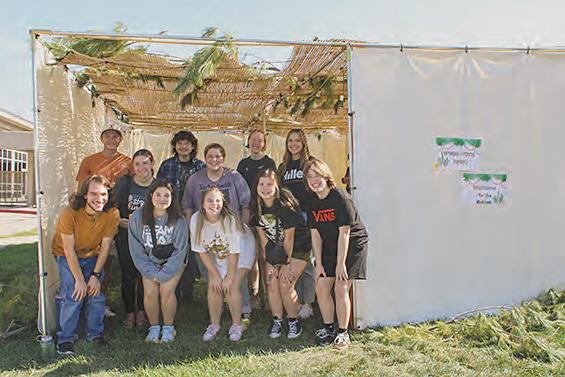
Strengthening the relationship between the local communities, UNL Hillel and the University was so important, because then, on Oct. 7th, everything changed.
“I know we all remember the rollercoaster of emotions that followed. I struggled with feeling more proud than ever to be Jewish, yet was scared to wear my Magen David necklace on campus. I wanted to post pro-Israel content on social media, yet I was scared of the potential responses. I tried to avoid the Palestinian protests, but found myself myself wrapped up in their words. I was unsure how to lead Hillel when feeling so defeated and in the dark, but the one thing I knew was that there was a certain energy and strength you only feel when being surrounded by other Jews. Hillel at UNL had to not just continue, but had to come back stronger than ever before. We worked closely with James Donahue, who provided us with resources and training for encountering instances of anti-
Continued from page A5
We loudly exclaimed: “Wait a minute! We’re from Omaha.” Immediately, the waiters and restaurant patrons broke out into raucous laughter. Music, song, dance, and humor were everywhere.



“Jewish students needed a safe space and a community on campus more than ever, and thanks to our progress from the previous year, we were prepared to provide that support at UNL. While other college campuses faced challenges, we had only positive news coming from UNL. We held an Israel solidarity event with the help of Dr. Ari Kohen and University leadership, who worked closely with our Hillel Board, ensuring our Jewish students’ safety at every step of the way. We were even given the vice chancellor’s personal phone number to call in case of an emergency. The support from university leadership reaffirmed my belief that UNL is not only supportive of Jewish life, but also fosters an environment where Jewish life can grow and thrive. Especially now, at a time when Jewish families are prioritizing their college students’ safety, while many Jewish students are leaving colleges in protest, we have a unique opportunity to grow our Jewish enrollment, and in doing so, expand our local Jewish communities.”
Cohen has now graduated from UNL and plans to continue her education. In this post Oct. 7th world, Cohen’s priority was finding a top tier graduate program at a school that not only welcomed Jews, but had a large Jewish community. She was thus inspired to apply to the Speech-Language Pathology program Yeshiva University in New York City.
“I learned from my experiences in undergrad that my Judaism is an essential part of me, whether I accepted it or not. The best advice I could give to other college students would be to get involved with Jewish life on your campus, even if it’s as little as once a semester. If you’re anything like me, it may be the last thing on your mind as a freshman, and something your parents are really good at nagging you about. Your sorority life will not last forever, neither will your grades, or most of the friends you make in college, but your Jewish essence will. Now is not the time to cave to fear or division, but to be united and unapologetic of who we are. It is time to wear our stars and kippahs proudly; it is time to show our unbroken spirit and refuse to let others diminish our pride, our joy and our right to exist. Evil can be extinguished, but the people of Israel are an eternal flame. Am Yisrael Chai!”
Sam, Naomi, and their children now live in Florida. Suzanne, after practicing law for a few years, received a teaching degree from Northwestern University, and became a high school English teacher. She is now a full-time mother, living in Seattle with her husband Tracy (originally from Buffalo) and our three grandchildren.
Margo, Ari, and I continue to live in Omaha. We retain the warmest of memories of our special evenings at Sammy’s Roumanian restaurant.



STEVE
RIEKES
In the Jewish Press of June 21, 2024, Richard “Dick” Fellman wrote an article entitled Youth Programming in the 1950s. This evoked my memories of when I was intimately involved in programming for Jewish youth in Omaha.
Both Dick and I are graduates of Central High School, where prior to 1970, almost all Jewish high school students in Omaha attended. I have extremely positive memories of this experience. It helped shape my life as it did many others. Of particular importance was membership in AZA (Aleph Zadik Aleph).
AZA was conceived of as a kind of club or fraternity for Jewish young men. In 1923, a group of them in Omaha approached Sam Beber, a young attorney, asking his help in creating such an organization. Sam agreed to be their advisor, provided that AZA, the name they adopted, would be far more than just a club. It would be a comprehensive program for all young Jewish men and cover many activities that were important to their lives.
In 1924, AZA was created and officially recognized as the youth wing of B’nai B’rith International, a worldwide Jewish service organization. AZA was an immediate success. AZA chapters were established throughout the United States and the rest of the world.
In Omaha, chapters worked with each other and the Jewish Federation of Omaha. I was a member of AZA chapter 100, known as the Sam Beber chapter. Another chapter in Omaha, AZA 1, known as the “Mother” chapter, continues to exist today.
Activities for members were many
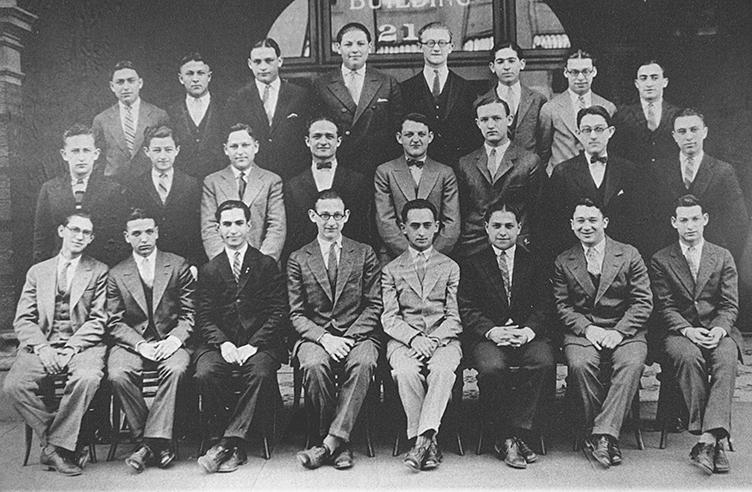

and varied. There were athletic competitions especially on Sundays. They included flag football in the fall, basketball in the winter, and softball in the spring.
There were theatrical performances, talent shows, and other cultural events.
Members were encouraged to be proud of their Jewish heritage. They
also participated in Jewish religious observances and in communal causes. Conventions, conclaves, and other gatherings, enabled members to interact with Jewish youth from Lincoln, Sioux City, Sioux Falls, Des Moines, and many small towns. Chapters in this geographical region, known as the “Corn See AZA Memories page A8
HAL SENAL
Sheket bevakasha, aksha!
It’s pretty much the only whole Hebrew phrase that I have managed to keep; at least, since 1994-ish. After all, it was a phrase I became remarkably familiar with. Then again, it wasn’t as if I had banded up with the “Bad Crowd,” as it were. You know... running down the JCC hallways... instead of walking. (And if you think that I’m going to say, “But I never snitched...!!” you will be needing a Snicker’s bar, because to paraphrase that delicious candy bar’s slogan, it’s gonna be a while...)
I just... had this thing.
Fine. I’ll just come out and say it: I was a “Giggler.”
Yes, I was that kid that would just start laughing uncontrollably; sometimes, out of nowhere, or occasionally, if some wisenheimer in the classroom cracked a joke, or cracked wise.
I mean, come on. We’re Jews, and it’s Hebrew school. There are always at least three to four budding stand-up comic wannabes per Hebrew School classrooms of 12-15. It’s basically the law.
Sadly, I wasn’t even “The Funny One” in my class.
See, if you’re like me and suffer from The Giggles–plus a strangely-early self-diagnosis of RBF, but that’s beside the point!–you tend to be a little nervous, and scared about, well, everything... and the laughter would never end, folks–much to my teachers’ chagrin.
And yet, while my Hebrew is, to be gentle, rusty, I can still remember my experiences in Hebrew school–some more fondly than others, to be sure–and despite all the “Sheket”ing, my 43-year-old self remembers those laughing fits fondly.
See Hebrew School Confidential page A8
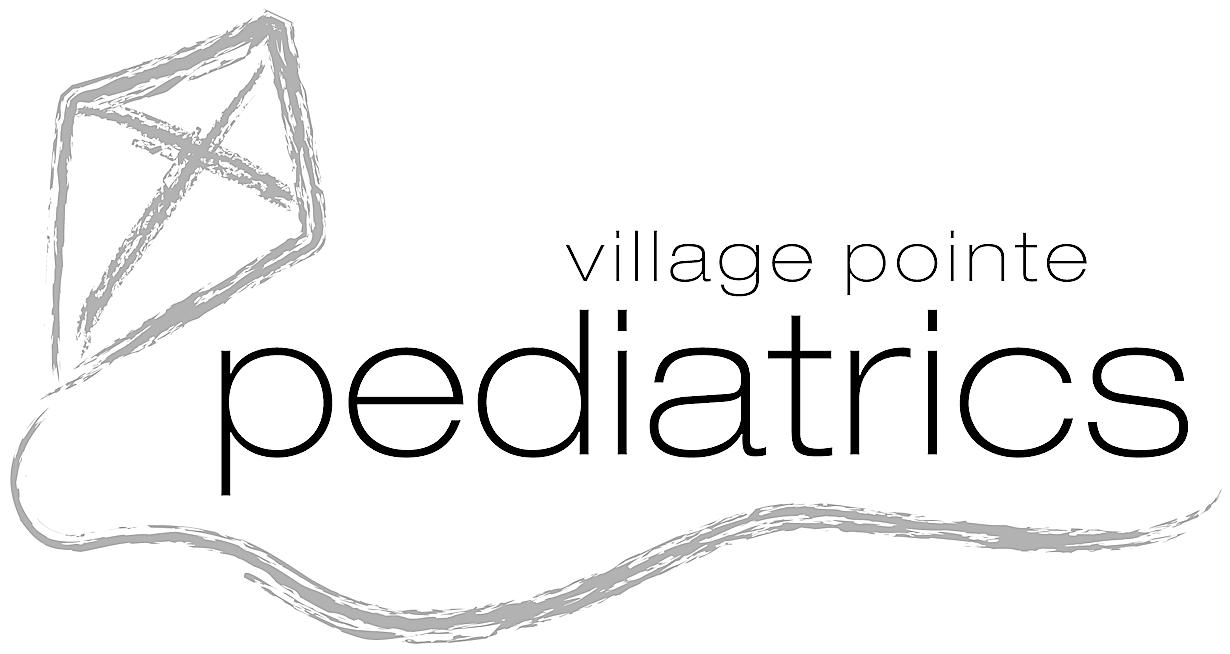
Continued from page A7
We’re living in a world where bright moments, moments of levity and cheer, moments where the peals of laughter come flowing out of you, naturally; the kind where you’re left breathless, with your cheek bones aching, becoming fewer and farther between.
Last year, I attended a comedy show, featuring the Sklar Brothers. Maybe you read about it. And the biggest take away from it was that we need to laugh more, collectively, as a people.
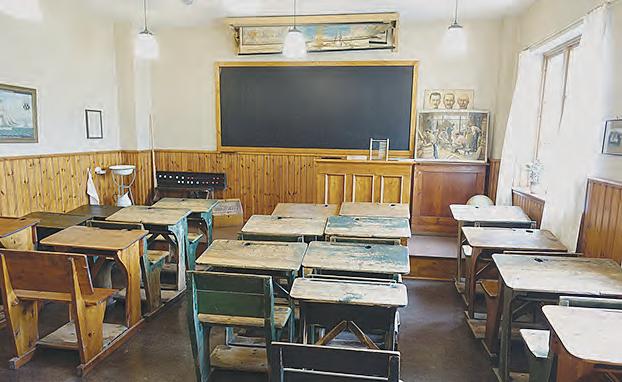
So, I dunno. maybe I was on to something, with all that disruptive giggling.
The thing about education is, school setting or otherwise, it comes in all shapes and sizes.
Life, itself, is basically one long lesson, taught by trial and error and varying degrees of quality parenting (side effects may occur and may vary; consult your nearest psychologist), which I have zero experience with, and absolutely no credibility to speak about.
But that doesn’t mean I won’t. That doesn’t mean I haven’t learned a few things, here and there, about life.
Life, I can assure you, I have much experience with. Indeed, education can be expensive. Period.
I was educated on many topics of interest (or lack thereof), over the last year and even in our current year.
For your reading pleasure, I will offer you a sort of condensed syllabus of what I learned in 2024 and 25, leading up to this special Passover Edition.
• Divorce 101
• Starting Over (AP)
• Self-Acceptance 101
(Note: I’ve been auditing that one for most of my life. Last year, I took the plunge, and learned to love myself, darn it. Besides, my real preference, a kind of revisionist version of “Happiness 101,” called “Euphoric Happiness” was full. Some sort of Kool-Aid incident canceled it for good. #Sad
My 12-Step Sponsor once told me that G-d, or whomever or whatever you choose to call a Higher Power, must think I was really hungry, if (S)He keeps adding so much food to my already overflowing plate.
So... back to the giggling.
I know that it was probably super disruptive of me, and about as mentally and physically taxing as what I can only imagine an entire episode of a Ben Shapiro podcast might be on a mere mortal mind and body, respectively.
Yet, learning to laugh at life, grow up and live, in the face of adversity (#letadrienbrodytalklongerhe’sfamous) eventually learning to feel comfortable in your skin, and coming into your own?
There’s no educational experience quite as vital or valuable as life experience.
So, to all of my Hebrew School teachers and faculty of days gone by, thank you for putting up with my laughter.
Besides, there was a time when I eventually learned to be funny.
How do I know?
You’re reading this last sentence.
Ok. now... I will sheket bevakasha, aksha.
Continued from page A7
Belt,” were part of District 6 of B’nai B’rith which included the upper Midwest and parts of central and western Canada.
Members learned how to properly conduct a meeting, to hold fair debates, and run elections.

In addition, they learned how to raise funds to support their chapters’ activities. A popular method was holding “sweetheart” dances. Prior to the date of a dance, members of a chapter would nominate several young Jewish females to be candidates for their chapter’s “sweetheart.” The name of the chosen “sweetheart” would be revealed at the dance. Prior to this, members sold tickets and advertising spaces in an ad book. Advertisers included parents and friends, as well as florists, tuxedo rental shops, and other interested advertisers.
AZA members assumed responsibility for many matters. For example, older members who had drivers licenses actively chauffeured younger members to activities. Seniors often acted as unofficial chaperones for freshman, particularly when events were held at a camp or other out of town locations.
Members participated in Jewish communal ceremonies and activities. They participated in demonstrations against the Soviet Union and its treatment of Jews. They participated in Israel Independence Day celebrations and other community activities.
Of significant importance was the role of adult advisors to each AZA chapter. Many were mature men who had teenage children of their own. For example, Dan Gordman, father of Jerry and Nelson, and Louis Canar, father of Joyce were advisors to AZA 100.
I was greatly influenced by their service. So, when I came back to Omaha to start my legal career, my first volunteer See AZA memories page A9
MULTIFAMILY PROPERTY MANAGEMENT


















COMMERCIAL SALES, LEASING & MANAGEMENT
COMMERCIAL PROPERTY CONSTRUCTION





COMMERCIAL FACILITIES MAINTENANCE
MULTIFAMILY CONSULTING, AUDITING, & TRAINING SERVICES

“The Talmud (Kiddushin 29a) outlines fathers’ responsibilities to their sons. According to the text,” Rabbi Victor A. Appell wrote, “fathers are obligated to circumcise their sons, redeem them if they are the firstborn, teach them Torah, find them a wife, and teach them a trade. Talmudic scholars added a sixth obligation: fathers must also teach their sons to swim. Today, we think of these instructions as incumbent upon all parents and guardians and applicable to children of all genders.”
It is that sixth one many Jewish parents find easiest to follow through a JCC membership. Yes, that’s a shameless plug, but in all seriousness: our Staenberg Omaha Jewish Community Center probably has one of the most passionate swimming teachers around. Her name is Marcee Marti Rogers, married to Charles (Chuck), mom of Mallory, Gavin and Renatta.
“The directive to teach children to swim can be interpreted in several ways,” she said. “It’s literal, as in being obligated to teach children to swim so they can survive in the water. In a metaphorical sense, by teaching them to
Continued from page A8 position in the Jewish community was that of an AZA advisor. It was my way to show gratitude to Dan and Lou. Howard Kaslow, who graduated a year ahead of me at Central, was senior advisor to Chapter 100, and may have been motivated to assume this position for the same reason I did. When he moved on to other communal activities, I became the senior advisor with a junior assistant. The role of advisor, while demanding, was also rewarding. There were also a few occasions which Howard described as “double aspirin” moments for the advisors. Such meetings were always tense, as members were very serious about the task at hand.

swim, we equip them with life skills, such as common sense. This allows them to navigate the world independently. Finally, by teaching them swimming, we teach them an essential survival skill.”
Marcee was born in Lincoln and attended Lincoln East High School, where she participated in synchronized swimming. She learned to swim at a very young age, and by the time she was 15, her swimming coach asked her to teach others.
“It paid $15 per hour, which was really big money,” she said. “And no, I had no training, we just swam. I also became a lifeguard.”
She also worked as a lifeguard at Lake Okoboji, “which was a very different thing,” she said. “I followed it up with a college internship at the Omaha JCC Aquatics Department, while I studied recreational therapy at the University of Nebraska-Lincoln.”
Immediately after graduating, she turned that internship into a full-time position, but left after 2.5 years to do recreational therapy at St. Joseph’s. There, she worked with the elderly, with young children, from every single unit at the hospital.
See Teach them to swim page A10
100, Rand Engel, was elected Grand Aleph Godol (President) of District 6. We remain friends to this day. Another member of AZA
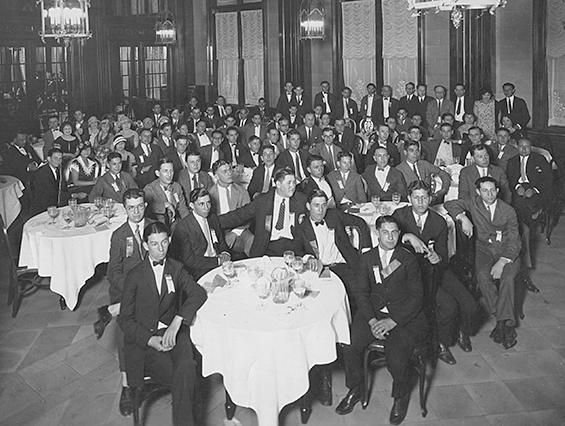
One of these moments occurred when my chapter held an all-night meeting to nominate candidates for an upcoming “sweetheart” dance. My assistant, instead of staying in the background, asked the members, “Why do you have to nominate a high school girl? Why don’t you nominate an older woman who has performed communal service?” The boys went wild with confusion. It took me and a quickly apologetic assistant quite a while to calm things down. I received much satisfaction as an advisor. Of significance was that one member of AZA
100, Ed Zelinsky, was elected Grand Aleph Godol of AZA International. Ed had to defer his first year in college so he would have time to visit AZA chapters around the world. Through my involvement with AZA, I established lifelong friendships. Among them were Bernard and Bruce Bloom, Harold Kaiman, Frank Goldberg, Ed Sidman, and Morris Brodkey.
As AZA has influenced my life, many others have shared with me this same sentiment. Bob Goldberg, the current CEO of the Jewish Federation of Omaha, has expressed similar feelings.
I hope that, for years to come, the opportunity AZA has offered will be available to the Jewish youth of Omaha.


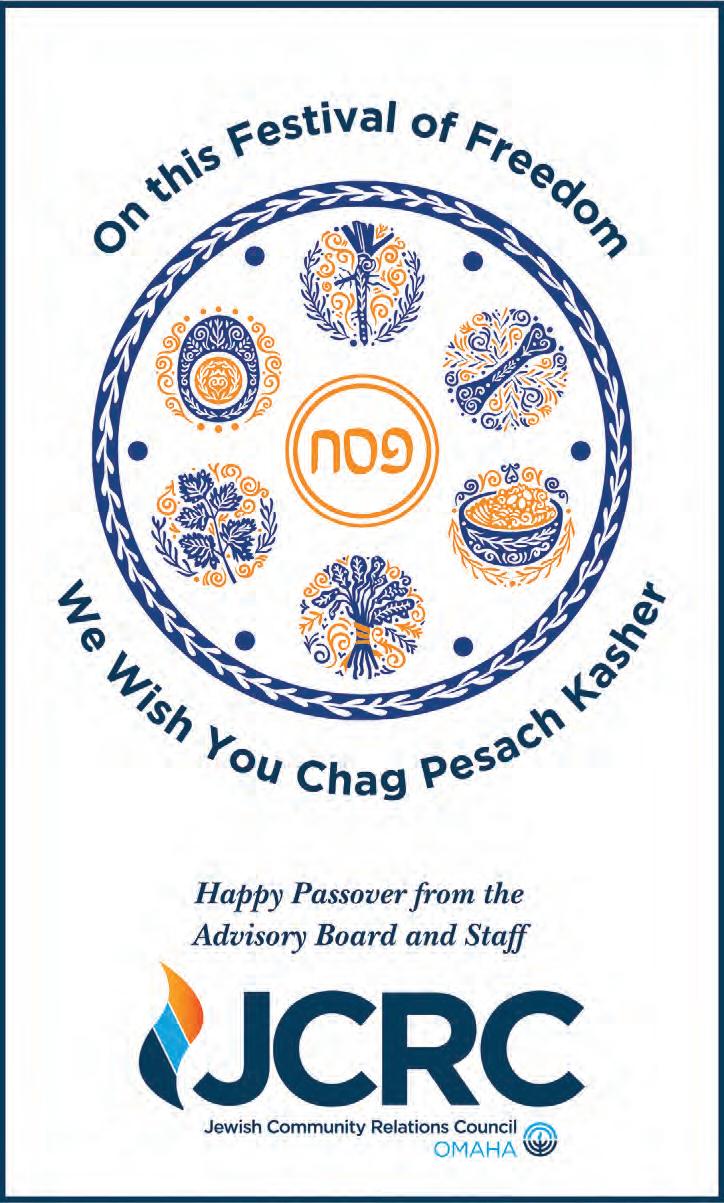



GABBY BLAIR
While Julia Raffel comes from a long line of educators, her decision to become a teacher is truly unique. “During my senior year, I did a lot of soul searching. I was unsure of where I wanted to go to college and what I wanted to study. I was considering majoring in education because I loved working with kids and my grandmothers were both teachers, which was inspiring to me, but I was hesitant, “ she shares.
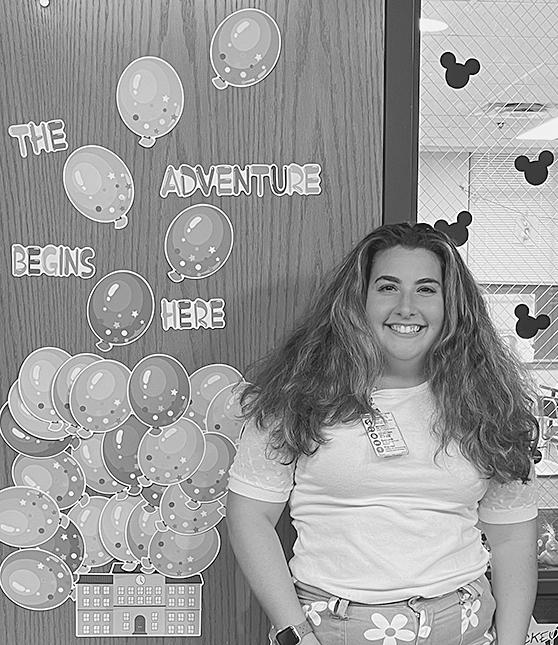

“Growing up I struggled with dyslexia. I had a really hard time, especially with my core subjects, but my parents (Amy Tipp and Andy Raffel), were wonderful advocates and found the correct people to help me succeed. Throughout school, I was blessed to have amazing special education teachers; they really helped push me to flourish in every way they could.” She continues. “My teachers made a huge difference in my life. They provided great learning environments where I could be myself and not worry about being judged for not knowing how to spell a word or not understanding how a math problem worked. I was encouraged to ask my teachers for help which in turn taught me how to effectively advocate for myself when things got hard. It also helped me better understand the importance of and my rights to accommodation in regard to my Individualized Learning Plan.” Raffel also reflects fondly on the guidance from her tutors, Sindee Katskee and Lynn Pop, who worked with her daily after school. “Sindee helped me find other ways of learning material in an easier and not so frustrating way. She helped me with EVERYTHING!” Raffel shares that while socially gifted and quick to make friends, she was in special education classes from Kindergarten through 12th grade due to her learning disability. It was in her senior year of high school when Julia finally found what she calls her ‘spark.’ “When selecting classes for my final year of high school, there was an opportunity to do a practicum. During my final semester, I got to teach in a kindergarten classroom and it was there that I found my calling!” Motivated by her experience, Raffel decided to pursue her education degree at The University of Nebraska-Lincoln where she earned endorsements in K-12 general and special education, but says her passion is with working with the ‘little humans’ in special education. She draws from her own experiences in the classroom and reflects on how impactful having the right teachers was for her. “I want to give back to the kids who are struggling and don’t understand why they are having a hard time. I want to show my students that although it may not be easy, they can do it with support and guidance. I was blessed to have an amazing group of teachers who helped me succeed and I want to offer that crucial support by providing a classroom environment that they feel comfortable learning in without fear of judgement... compassion, patience and empathy is something from which we can all benefit and is something that I can be proud of.”
Continued from page A9
“The facility had a swimming pool, and since I was a certified lifeguard, I was able to take residents swimming as part of their therapy. I remember this one little boy, about three years old, who refused to get into the water. He only agreed once I promised to hold him the entire time. And I did!”
Marcee has worked with many different populations, including those with severe mental and physical limitations. She fondly remembers the full closet of swimsuits at St. Joseph, and the love the residents had for the water.
“Next, Charles and I married, and Mallory joined our family,” she said. “Then Gavin was born, and we moved to Geneva, Nebraska, about an hour southeast of Lincoln, because that’s where Chuck got his first job as a family practitioner. There was an outdoor pool, but it wasn’t heated, so I was not successful in trying to start a swim team, no matter how hard I tried. And I tried! Then I found out the youth detention center had a pool, and their water aerobics teacher asked me to substitute teach. She gave me a detailed flip chart telling me what to do, but I ignored it, so she never asked me again.”
A little less than 30 minutes north of Geneva is York, which had a community center-and a pool. “We took the kids there to swim, but living in Geneva was just not ideal. I
While college had its challenges, especially during the height of COVID, Raffel made the most of her time at UNL. She made lifelong friends in her sorority, Phi Mu, and served as Hillel president. She spent half a school year student teaching in Orlando, Florida (if you know her, Disney is a big part of her family!) and half the year student teaching at Hartman Elementary in Omaha. When asked why she chose to spend a semester student teaching in Florida, she shares that she was interested in seeing how other states help special education students learn in light of rules and laws being different. Upon graduating in December 2022, she already had a contract signed and began teaching for Omaha Public Schools in January 2023. “OPS has been a wonderful place to work,” she shares. “As a special education teacher, it offers the most diverse needs in the state and I feel it also offers me the opportunity to make the most impact. I want to learn more about the students and the backgrounds that they came from; that’s why I liked OPS compared to other districts in the Omaha area.”
During that first semester, Julia split her time between two schools; while challenging, Julia is one of those rare people who can always find a silver lining. “I taught at Gateway Elementary in the morning and Pawnee Elementary in the afternoon, thankfully those two schools were only a mile apart! I was the special education resource teacher at both schools, helping kids with disabilities in grades 1-3. Fun fact, Gateway is the largest elementary school in OPS, if that tells you anything!” Julia has found the past 2 1/2 years to be some of the most meaningful. “Sure there are challenges... OPS is not alone in facing a severe shortage of teachers, especially in special education. There are times the curriculum doesn’t match the needs of a particular classroom or student, there are the normal issues that arise in a school between parents and administrators and of course there is the challenge of moving between multiple schools in such a short time, but I have found that flexibility and staying focused on my personal goal of providing the support my students need with kindness, patience and care are key to overcoming any obstacle. When I am able to connect with students and parents... when I can share my own story and explain why I am here in a way that is relatable, I am not sure many teachers can do that... when I have meetings with parents and they are crying happy tears... it is just really something special.”
When asked about where she might envision her self in the future, Julia is thoughtful. “I am happy where I am right now. I have so much to give and learn and I really enjoy what I do. Maybe further down the road, I would consider educational leadership or administration and I think it would be cool to continue education with Israel in mind or help youth learn the English language, but for the immediate future, I think I am right where I need to be.”
remember having to drive Mallory two hours to Temple Israel on Cass, with Gavin in the baby seat. I was so happy when we moved to Omaha!”
And the rest is history. Today, Marcee can be found in the Staenberg Omaha JCC Aquatics Department, teaching anyone who needs it to swim. “It’s so fun,” she said, “I am currently teaching Mushka and Rabbi Eli Tenenbaums’ daughters, Chana and Devorah, when back in the day I also taught Mushka’s sisters Estie and Shevi. I’ve seen an entire generation come through here.”
All three of Marcee and Chuck’s children were on the JCC swim team, and all have worked as swim coaches as well; there have been Rogers children on the JCC team for 23 straight years. She’s completed two open water swims at Lake Oboboji, swimming from Gull Point State Park to Pike’s Point, which is a 3.2-mile trek. She swam the Southend Rowing Club Alcatraz Open, from Alcatraz Island to San Francisco’s Aquatic Park, “which is 1.4 miles in super-cold water, and I did it twice!” she said. Finally, she swam across Lake Superior, from Bayfield Wisconsin to Madeline Island, a trip on 2.1 miles.
Those are impressive feats, but Marcee’s goal is not to create champions. She is here to teach a life-saving skill, and fulfill the mitzvah of teaching a child to swim. Ask anyone she’s ever taught: she does it well.
PASSOVER CHOCOLATE CARAMEL MATZA CRUNCH
Helen Epstein

Credit: simplegreytshirt.com
Directions:
Preheat the oven to 350 degrees. Line cookie sheet with heavy duty foil and spray with Pam or coat with oil to prevent sticking. (can lay baking parchment over foil). Lay matzas in a pan and break to fit close together. Cook margarine and sugar over medium heat, stirring constantly, until it boils. Stir and cook for 3 minutes. Remove from heat and pour over matza. Spread to cover. Bake for 15 minutes and check frequently (can lower temperature to 325). Remove from the oven and sprinkle with chocolate chips. Let stand for 5 minutes. Spread melted chips over matzas. While warm, cut into squares. Chill in the refrigerator.


HAL G. SENAL
Learning is just like anything in life: You have to pay attention, and you have to work.
Rinse and repeat.
As always, levels of difficulty may vary.
When it comes to behavior and learning patterns, what truly distinguishes adult education from that of teaching youth?
For starters, unlike children, whose learning is often driven by external motivations and structured curricula, adults tend to look more inward; perhaps on a quest for personal growth.
This desire is what makes adult education unique and complex; it requires an adaptive teaching approach that respects and integrates the diverse backgrounds and knowledge of the learners.
“With kids, they’re certainly much quicker to change and to adapt,” explained Rabbi Geiger. “They don’t have such long, deep, ingrained habits and beliefs; so, in a certain sense, it’s easier teaching children.”
Grown-ups, on the other hand, are a tougher sell.
“With adults, you get these very broad, open-ended questions,” said Rabbi Geiger. “With kids, depending on how old they are, and which stage of development they’re in, they may not be ready for the full answer for the ques-
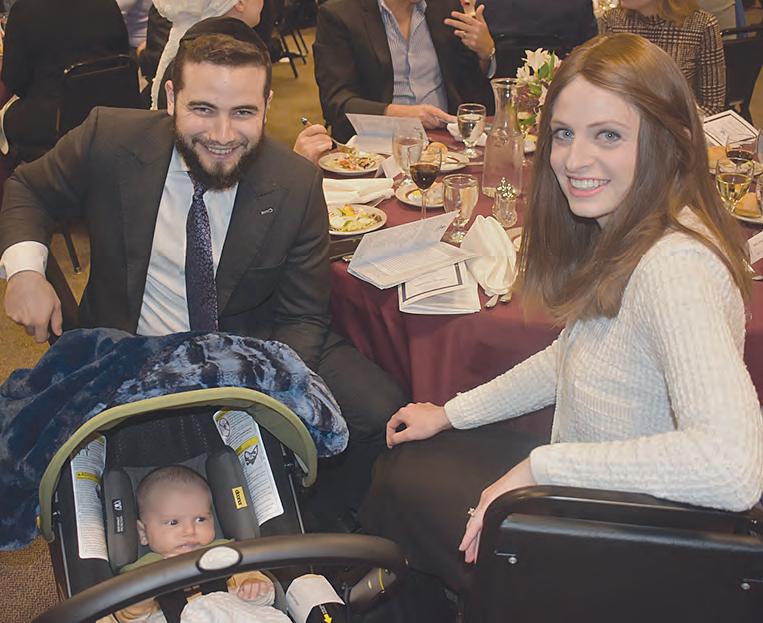
tion. So, that can pose as a challenge for those working with kids versus adults.
After all, as everyone knows, while knowledge is good, the truth can hurt.
“If [an adult] is asking a question, you can give them the full answer. The other thing with adults, is that they can handle gray. Children’s thinking is typically very black-and-white: good and evil, up and
down. They’re also much less comfortable when they come to an adult, [looking] for an answer, and doesn’t have an answer, while adults will respect if you tell them [you don’t have the answer].”
He highlighted that adult learners come with a much richer breadth of life experiences and diverse perspectives See The learning never stops page A12
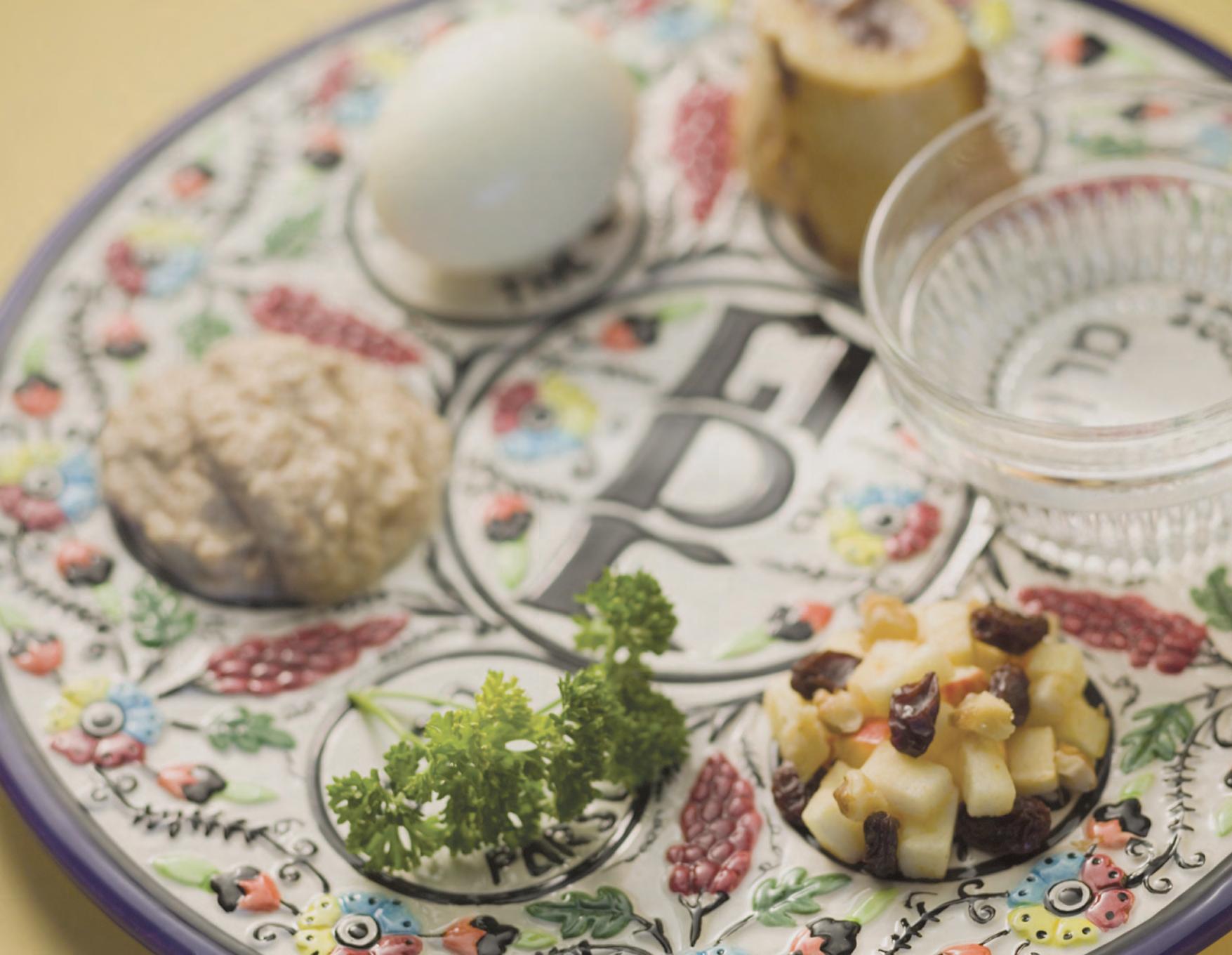



Continued from page A11 that can greatly enrich the learning process, making it more of a collaborative journey of discovery rather than a one-way street of information.
Rabbi Geiger added that adult education is less about learning, in the traditional sense, and more about, say, the pursuit of a richer understanding that often goes beyond the traditional classroom sense; sometimes delving into existential inquiries that shape one’s understanding of faith, purpose, and identity.
If there are a lot of puzzled looks–and so early in the article, too! Shoot!- it’s easy to understand why: There are no easy answers. And let’s face it: sometimes the truths and fictions are hard to discern.
Then again, as far as Rabbi Geiger is concerned, that’s kind of the point of education: the learning never stops, and the lessons keep coming, whether you want to learn or not.
“One thing that I really find people are interested in, and I think it’s important to study, is the basics of Jewish theology,” said Rabbi Geiger. “[As in], ‘What do you believe in?’ or ‘What is G-d?’”
Whereas, with adult education, often influenced by factors like age, mental health and cognitive relay factors, requires a far more nuanced and personalized approach to teaching. See Learning never stops page A13
ANNETTE VAN DE KAMP-WRIGHT
Jewish Press
An abundance of flyers sit near the front entrance of the Chabad House, as in probably every Chabad House across the world. “Jewish Education: Invest in futures” one says. It explains that Moses commanded his people to teach children and become a literate nation.
“From ancient times,” the brochure continues, “the Jews were the only nation where education and literacy was the norm, rather than the privilege of the elite.”
Rabbi Eli Tenenbaum, married to Mushka and father to Chana (4) and Devorah (2) has a lot to say about education. It’s his bread and butter, so to speak: as a Chabad Rabbi, he is always teaching.
“Thinking about the role of education is interesting,” he says, “because when we talk about it, we generally think about the kids. However, in Judaism there is a requirement to study for all of us, no matter how old we are.” He illustrates it with a joke: A community hires a new rabbi, and after just a few months, they decide to fire him. Why? The rabbi asks. They tell him: “People who walk by your house watch you studying every night! You must not know everything, so you are obviously not up to the task!”
In Judaism, we start early:
“It’s multifaceted,” Rabbi Eli said. “We start by teaching young children the Shema, which talks about love of G-d; we continue with the mezuzah, tefillin, and Torah education. When we educate children, it is not just about information and facts. What is even more important, is that we teach them how to become a Mensch. After they learn the information, they have to learn how to apply it.”
However, education, especially Torah education, is not only for children. As human beings, we never stop learning, Rabbi Tenenbaum

says. The same goes for Torah study: “Many of us are given a micro-dose in Hebrew school,” he says, “and we need to continue studying as adults. Recently, we hosted the Sinai Scholars program at Chabad, which is a deepdive designated for college students. We also have a number of different classes for adults. Studying Torah is in and of itself a mitzvah, as is teaching. It has the dual component of studying, and connecting intellectually. It creates a relationship, a yearning for more. Other mitzvot are the garments, Torah study is the food of the soul. It’s a mitzvah with added benefits.”
If studying and teaching are both important, does he have enough time for himself? Like the rabbi in the aforementioned joke, Rabbi Tenenbaum, too, is supposed to keep studying.
He says that on a personal level, the welcome side effect of teaching is watching others have that ‘a-ha’ moment, The look on their faces when they get it. “When you teach,” he says, “you’re the one who benefits the most, I think. After all, you have to gain the knowledge before you can pass it on. In my early twenties, I did Smicha (rabbinic ordination) and the following year I was asked
to come back as a teaching assistant. Having to teach others made me remember information I wouldn’t have otherwise. It’s my mission! Your abilities and surrounding will usually tell you what your mission is, and for me that is teaching. As for studying, it is important to make time for it. The Torah says everyone should study from the Torah what their heart desires, study what you enjoy. I still study on my own, but studying with others, even in other cities, it gives that push and pull, and makes you think more critically.”
Chabad currently has a Tanya class, which is something taught in about 80% of Chabad Houses. The Jewish Learning Institute classes are centralized across the country, and they offer three to four flagship courses each year. Most of the classes taught at Chabad in Omaha are self-propelled, either by Chabad or by community members.
What does Rabbi Tenenbaum enjoy the most?
“Connecting people with Hashem through studying together,” he says. “Sometimes you cannot achieve that any other way but through studying.”


When it comes to the Omaha Public School (OPS) District, and the overall education experience in of itself, it wouldn’t be too much of a stretch to say that Toba Cohen-Dunning is all over the place.
Seriously; this lady doesn’t stop. Well, at least for the last, oh, 19 years.
“The Omaha Public Schools Foundation was created in 1984, with a gift of less than $2,000 Curriculum in the
Omaha Public School,” Toba said. “So, the staff got together: the teachers, administrators got together and put together this money...and that’s what started the OPS Foundation in ‘84 and it was meant to create a system by which scholarships could be given to graduating seniors.”
It also helped both busy parents and their kiddos, as it related to other extracurricular activities and enrichment opportunities for students and professional development for teachers.
over to Normandy, so they were able to walk in the parade. I mean, it was a once in a lifetime thing, and we did the same thing for Hawaii [in relation to] to Pearl Harbor.”
Toba also highlighted other projects, such


“It’s just blossomed,” she said. “The 1990s were an era of latchkey kids, you know, which meant they were going home without afterschool care. As more parents entered the workforce, it wasn’t the ‘50s anymore, where there was always somebody home. So, in 1990, the foundation got permission from the district to create Kids Club, our before-andafter-school program.”
An advocate for community engagement and educational empowerment, Toba has pioneered many initiatives and used strategic partnerships to uplift underrepresented groups.
Omaha has 11 Metro districts, including Millard, Westside, and Bennington. Each one operates its own parent-paid before and after school program through foundations, a unique model in the United States. As a nonprofit, The foundations generate revenue that is given back to the district through teacher grants and wish lists, helping offset the cost of supplies so teachers don’t have to pay out of pocket. Her vision and leadership have been instrumental in pioneering several beneficial projects.
“Our kids are amazing, and they absolutely deserve the very best facilities,” she said.
“What we do here, at the Foundation, is that we give away approximately just a little over $600,000 in scholarships for graduating seniors, and that is all donor-funded. It’s just a drop in the bucket. We’re a large district, but the great thing is, we exist to make lives better for our OPS kids. We had a lot of fun, a few years ago, on the 75th anniversary of D Day. We were able to send OPS JROTC students
as the renovation of sports facilities in Fontenelle Park. This initiative provided state-of-the-art fields and tennis courts not only for school teams but also for local youth sports leagues. These improvements have created valuable resources for the community, bridging gaps and offering top-notch facilities to the children of North Omaha.
On a personal level, she expressed her fulfillment in helping children and the joy of working with the new superintendent, Matt Ray, who is also Jewish.
“Being Jewish is the most important thing in my life,” she said. “Being able to help kids is right on par with that; and we were lucky enough this year to get our new superintendent, Matt Ray, and he’s Jewish! So, how fun is that to be able to say ‘I am fulfilled,’ and ‘Oh my gosh! My superintendent is Jewish!’ It’s the coolest thing in the world.”
She reflected on her career journey, from social work to public administration, and her dedication to making a positive impact through her roles at Boys Town National Research Hospital and the OPS Foundation.
“I think that when you are lucky enough to have a job that fulfills you, it’s better than winning the lottery,” she said. “When I got my master’s degrees in social work first, and then I did public administration, I knew that I wanted to develop a relationship with, you know, an organization where we could change lives.”
The only way to close this piece, it would seem–a story about a woman who has shown exemplary care for al the lives she’s touched, throughout her career, is by stating the obvious...Mission accomplished!
Continued from page A12
Rabbi Geiger mentioned a more recent example of humanity’s never-ending search for answers, for truth, even when the answers don’t always prove to be as interesting, or fruitful, as the questions asked.
“There’s someone, here, who has said to me, multiple times, that he used to be an atheist until he was in his 40s,” said Rabbi Geiger. Then he started learning about Judaism, and he still doesn’t believe in the G-d that he didn’t believe in when he was 30... but he wants a new perspective about what we mean when we say ‘G-d?’ What are our beliefs about the afterlife?
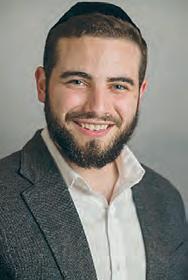
What’s the meaning of life? Why is life so difficult? What’s the idea with all the commandments that we do? All these fundamentals we grew up with, if we grew up in a Jewish home, a lot of times, there are superstitions that we have about different things.”
To sum up today’s lesson plan, for grown-ups, the desire to learn comes from a deeper, much more intrinsic desire to obtain knowledge. It is an ongoing journey, where every question, no matter how complex or ambiguous, can potentially lead to a richer, more enlightened existence. Class is dismissed!








ANNETTE VAN DE KAMP-WRIGHT
Jewish
Press Editor
Born and raised in Omaha, Melissa Shrago attended Burke High School, and knew she wanted to be an educator early. Her third-grade teacher even gave her extra worksheets, and Melissa played ‘school’ with all the kids in the neighborhood.
Freshman English teacher Karen Owens inspired her even more:
“It was in the way she related to kids,” Melissa said, “she was very professional, yet at the same time a tiny grandma.”
She attended the University of Kansas in Lawrence, where she finished the five-year educator program. “The program gives you more classroom experience before you start your student-teaching,” Melissa said, “and you attend Master’s level classes during your fifth year, which really give you a head start.”

While finishing her degree in 1992, she attended a teacher’s fair, where Omaha Public Schools had a booth; she interviewed, and received a call near the end of her final year in Kansas. She interviewed with Lewis and Clark Middle School, and they offered her a job that same night. It was a good match: for the next 30 years, she taught 7th and 8th grade Language Arts, honors special projects for high ability learners and drama class, and she also obtained her Master’s degree in reading education. She loved it, and had no plans to leave.
But then, in the spring of 2022, she received a phone call from Beth Cohen, head of school at Friedel Jewish Academy.
“She told me she wanted to start a middle school,” Melissa said. “And I immediately turned her down.”
Two years into the pandemic, 2022 was a rough year, even more so for educators. “Things had been hard,” Melissa said.
“My mom was really aware of how much it was all taking its toll.” And then, early in 2022, Melissa’s mom, Shelley Stern, passed away. Shelley was a familiar face at the JFO, often taking shifts at the front desk.
“After I hung up the phone, my husband Michael said: ‘Maybe you should go talk with Beth.’ I decided that just talking wouldn’t hurt, so I called her back.”
She went to Friedel to meet Beth during spring break, they talked for several hours, and it was done.
“I was in,” Melissa said, “and what’s more, I was incredibly excited about this amazing opportunity!”
Of course, she had a few things to figure out regarding her long-time career at OPS. She called her former principal who was also her mentor, and after a few weeks, they sorted all the details. On August 1, 2022, Melissa started working at Friedel.








The Friedel Jewish Academy Middle School took a full year of planning and research:
“I wanted to get rid of all the ‘icky things’ that go in in middle schools,” she said, “and we knew we had to build the best. I researched the curriculum, was involved in construction meetings and had to find the teachers. Once we had hired the teachers, Beth and I, together with 6th grade teacher Denise Bennett and the new teachers, attended a middle school engagement conference in Stillwater, Oklahoma. We all drove down in my car, so there was excellent bonding during that trip!”
See Melissa Shrago page A15







Jill Baron
Ingredients:
8 oz. semi sweet chocolate, chopped
1 stick margarine, room temperature
2 Tbsp. coffee
1/2 cup chopped almonds
1/2 cup sugar, divided
1/3 cup potato starch
4 eggs, separated and room temperature
Glaze:
6 oz. semi sweet chocolate
6 Tbsp. margarine
1/2 cup chopped pecans or walnuts
Directions:
Preheat the oven to 375 degrees. Melt chocolate, margarine and coffee. Stir until smooth. In a food processor pulse nuts with 1/4 cup sugar. Pulse in potato starch. Add chocolate mixture and pulse. Mix in egg yolks. Beat egg whites until soft peaks form. Beat in 1/4 cup sugar until stiff peaks but not dry peaks form. Add chocolate mixture. Pour into a greased springform 9” pan. Bake for 20 min. When cool, remove pan sides and invert. Torte may be wrapped in foil and refrigerated for up to 3 days. Frozen if desired.
For glaze: Melt chocolate and margarine. Stir until smooth and cool slightly until thick enough to glaze. Pour over the cake. May be decorated with nuts around the edge of the cake.
Continued from page A14
The students had known about everything going on for a while, especially since the school was expanding physically. They had a kickoff during the winter months, all the students received stocking caps, focus groups were run for the parents to find out their wants, needs and expectations. By the start of the 2023-24 schoolyear, the kids and staff were ready (if the building wasn’t exactly finished) and Friedel could welcome a robust 5-7 grade middle school. The following schoolyear, those 7th graders grew into 8th graders.
What hasn’t changed? The kids all still have prayer partners, and all grades still attend morning opening at the same time. Friedel’s curriculum cultivates critical thinking skills, problem-solving strategies, discovery, and curiosity. Teachers employ multiple approaches to accommodate individual learning styles and levels of development.
Friedel’s 10:1 student-to-classroomteacher ratio ensures that children receive individualized attention and differentiated instruction. Friedel students outperform area schools on standardized tests. On the spring 2024 MAP Growth standardized test (the most recent available as of printing): 88% of Friedel students test at or above average in math, and 89% of Friedel students test
at or above average in reading. And: Sixththrough eighth-grade students have an annual, educational travel experience.
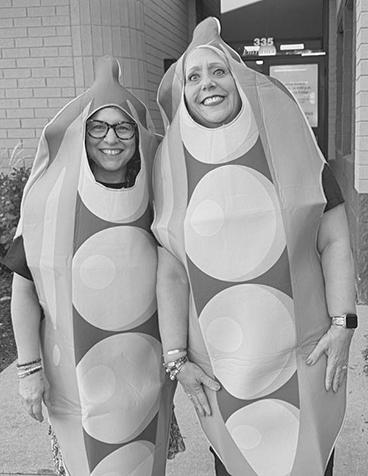
Judaism is celebrated every day with purpose and joy. Students develop knowledge of prayer, a love and respect for Israel, and the ability to read, write, and speak Hebrew as a living language. These subjects are integrated into the core curriculum, allowing children to build authentic connections between Judaism and the world around them.
Besides a stellar academic track record, Friedel also emphasizes character. In addition to fostering a culture of
respect and caring within in the school community, students regularly connect with others on campus—including preschoolers at the ELC and seniors at the Rose Blumkin Jewish Home—and across the broader community. For example, during the 2022–2023 school year, Friedel first and second graders began a pen pal program with students from Nelson Mandela Elementary, culminating in end-of-the-year field trips when students hosted their pen pals for a visit to each school.
Friedel staff and students know that education extends beyond academics.
The school actively works toward this goal through everyday encounters, such as giving older students chances to help and mentor younger students, and through a dedicated character development curriculum.
“Our teachers are relationship builders,” Melissa said. “They engage all the students, whether they are in their own classroom or not. Relationships at Friedel are never limited to your own classroom.”
She’s happy, she said. She’s able to help kids be the best they can be, and watch them learn, be kind and be a positive influence in turn.
Fun fact: Emily Coffin, who teaches first and second grade at Friedel, was one of Melissa’s students at Lewis and Clark.”
How’s that for a positive impact?

May the happiness you share this Passover remain all through the year.
ANNETTE VAN DE KAMP-WRIGHT
Jewish Press Editor
Shlichim have been coming to Omaha for 20 years, and during that time they have educated our community about Israel in their own unique way. They are emissaries, trained and sent to us through the Jewish Agency for Israel, and we are better because of it. They remind us of our heritage, help us celebrate all the different aspects of our shared culture and faith and bring us closer to Israel.
“Connect. Support. Engage,” The Jewish Agency states on its website. “Our mission is never more fully realized than in the works of our esteemed Shlichim. Every year, over 10,000 Israelis apply for the honor, but only a select group of outstanding emissaries are chosen. They are widely considered to be the best of Israel and the Jewish Agency helps them share their light with the world.
After extensive training at The Shlichut Institute, these role models are placed in schools, synagogues, JCCs, camps, universities, youth movements, and Federations all over the globe. There, they engage with Jewish and non-Jewish people about Israel, teach Jewish heritage, and speak about issues of national and religious identity.”
As they influence and teach us, they also take something back to Israel when their time here ends. Memories, connections, friendships: they all go both ways.
Who doesn’t remember Eliad Ben Shushan, with his guitar, his beautiful music and his fear of tornadoes? What about Yoni’s pickle-making skills? Sivan’s Israeli-inspired cocktails?
Our current Shlicha, Mika Mizrahi, had mere months under her belt when the Oct. 7 massacre happened. And while she decided to remain in Omaha during this difficult time, many of our former shlichim were called to serve in a variety of ways back home. Here’s what life has been like for them since their time in Omaha, in their own words.
Uri was the first ever Shaliach to Omaha, and stayed with our community from 20042006. He is originally from Zurit, a small town in the Galilee. Since his Shlichut, he has worked as a teacher, project manager and a group facilitator in schools, academic centers, the Jewish Agency for Israel and more. He also did a second Shlichut in Melbourne, Australia from 2016 to 2018.
Today, he is the content manager of OpenValley, where he’s part of a team that promotes innovative education in schools, organizations and the public sector in Israel.

Uri holds a BA and a Teaching Diploma in Theatre Arts from Tel Aviv University and he’s about to complete an MA in American Jewish Studies from Haifa University. He’s married to Michal, and father to Libby. They all live with their dog, Noocha, in beautiful Zikhron Yaakov.
In his own words:
It’s strange to think of myself as that young Israeli guy (only 23 at the time), fresh off the boat (literally, as I had just finished my navy
service that year), showing up in the Midwest. I was supposed to be the first in a position that was a funny mix of educator, ambassador, youth advisor, and event coordinator—all at once. The weirdest and most wonderful part of it was that it worked, big time! It worked so well that I’m proud to say this position still exists 20 years later. I learned so much during my time in Omaha. It taught me what community means. It showed me how wonderful Judaism can be when it’s more liberal and accepting, through the amazing rabbis and congregations. It deepened my understanding of the strong connection between the Jewish people and Israel, and it helped shape me into the Jewish educator I am today. This is where my professional journey as an educator began, and it’s still going strong.
But most of all, it was the people of the Jewish community who pretty much adopted me as one of their own, and made this experience so special.
See Uri Levin page B3

















2 | SHLICHIM: ZOHAR WINER
Zohar Winer Flacks served as the Omaha Community Shlicha 2006-2008
Raised in Kibbutz Bet Hashita, she had a very traditional Israeli upbringing on the Kibbutz.
In her own words
I started interacting with American Jewry during my sophomore year of high school as an exchange student, and again after the army when I spent a summer at Young Judea summer camp. This led me to the long Shlichut program. I was the Shlicha in Omaha from 2006 to 2008 and it has been, and still is, one of the best things I’ve done! I met my husband during the Shlichut (during a BBYO convention!!) and moved to Kansas City upon completing my time in Omaha. I then attended KU while working for both Jewish Federation of KC and Congregation Beth Shalom.
After KU, I joined Hyman Brand Hebrew Academy, the Jewish day school in Overland Park as the Director of Jewish Life, and two years ago I became the Director of Jewish Education and Upper School Principal for HBHA. I continue my Shlichut every day of my life, and it has truly become my calling.
I married Ben, whom I met at the Omaha JCC, and we have three children: Eli (11), Adam (9), and Talia (3). We live in Overland Park, KS and love it.
When I think back on my time in Omaha, it’s like a reel of shorts; from
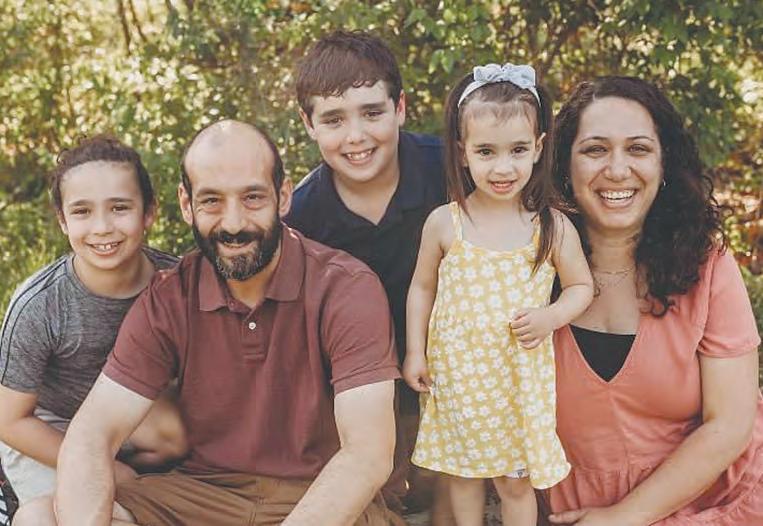
Maccabbi games, the summer camp, BBYO conventions, cooking classes, Mitzvah days, and many many Sundays in the different synagogues.
My best memory of Omaha is the people I met, the friendships created, and the time spent together. The Omaha community is small and mighty, it’s warm and welcoming and it allowed me to grow and become the person I am today. My experience in Omaha has changed my life’s trajectory in every possible way; I fell in love with my (American) husband, I fell in love with education, and I fell in love with Shlichut. My time in Omaha allowed me to find
my life’s passion and to start on a road that will lead to many sessions about Israel, many trips to Israel, and a lifelong engagement in building living bridges between Israel and the Jewish communities in the Midwest.
My Oct. 7 experience was much like yours. I was here in the U.S., trying to understand what was happening and feeling helpless, scared, and shocked. I have been blessed to work for Hyman Brand Hebrew Academy where we have a group of Israelis, and a very warm and family-like faculty that surrounded me and us, and helped us work through the pain and grief.
Tamar Halevy was the Omaha community Shlicha from 2008-2009. Today, she is married to Erez and they have two gorgeous girls - Mika (5) and Ori (2.5). They live on the Kibbutz and built their home there.
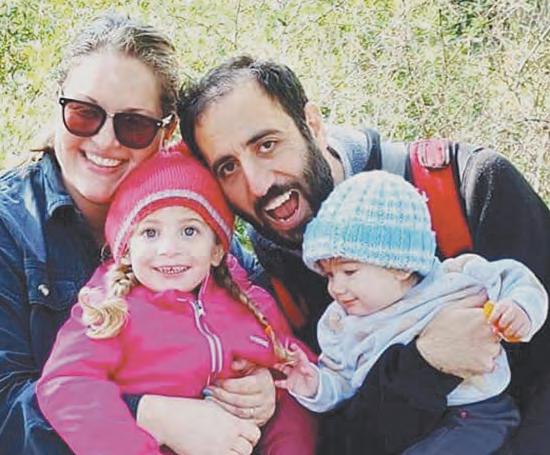
In her own words:
My year in Omaha was extremely meaningful. I met amazing people, and found an extraordinarily strong and welcoming community. I loved working at the Jewish Community Center and being a part of the team. I also loved working with the children, the teens and BBYO, and all the synagogues and congregations. I loved all the Shabbat services and dinners. Although I came to teach, I’ve learned so much about Judaism and my Jewish identity from the people and the Jewish community of Omaha.
Today I’m an attorney at IRAC - the Israeli Religious Action Center — the public and legal advocacy arm of the Reform Movement in Israel. IRAC is an organization that works to secure civil and human rights in Israel based on Jewish tradition, as well as precepts of Israeli law and universal values.
Our Kibbutz is located about 40 KM from Gaza, and during the years we’ve had our fair share of missile attacks and alarms. Since Mika was born in 2019, we’ve had a “round” of missile attacks every year, each time causing the temporary closure of all workplaces and schools for days or weeks. On the night of October 6, we had a families’ camping See Tamar Halevy page B3

At CBRE, we are deeply connected to Omaha. Our team combines local expertise with the power of global resources to deliver unmatched commercial real estate solutions. Our boutique approach ensures personalized strategies that drive business growth, bottom-line performance, and long-term success. Whether you’re an occupier, investor, or developer - solving business challenges through real estate is our business.
From all our team in Omaha we wish you a happy Passover.
For more information on how we can help you with your commercial real estate needs, please contact:
Bennett Ginsberg Managing Director
+1 402 607 5833
Learn more at cbre.com/omaha
I was born and raised in Har Halutz, a small Yishuv in the north of Israel, and today am living in Holon near Tel Aviv. I was the Shlicha in Omaha right after my army service when I was 23 years old. Today, I’m 38. Since returning home from Omaha, as can be expected, I’ve gone through many changes. I met and married my husband Elad, I have two wonderful boys (Lavie, 5.5 and Nevo, 3); I went to law school and became a lawyer, worked in education and held many other jobs in between. I’ve traveled the world and settled back in both Jerusalem (six years) and the Tel Aviv area (eight years).

Since having our sons, we have gone through much turmoil, both national (a terrible war) and international (covid) and personal (Lavie was born premature and we went through a lot with him since he was born). And with all that, I feel very blessed to have my family be all well and healthy.
Oct. 7 was and is still as traumatic as can be expected for every Israeli. I am very lucky that I don’t know anyone personally who was impacted directly on that day, but the effects of that day
Continued from page B2 night in the Kibbutz. It’s a beautiful tradition we have every year to celebrate the holiday of Sukkot, where hundreds of people and families gather and put tents all over the main lawn of the Kibbutz for an evening full of activities and a community sleepover.
On Oct. 7, 6:30 a.m., we were all sleeping in our tents on the grass, when the sound of alarms suddenly caught us unprepared, with no shelter or safe room nearby. The closest relatively safe place was the hall of the gym and we all gathered there, carrying sleepy children in our arms, waiting for the alarms to stop. But they didn’t. The rockets just kept coming and coming. A few of them hit the fields of the Kibbutz. Luckily, and thanks to the system of Iron Dome, no missile fell inside the Kibbutz and no one was hurt or injured.
Around 7:30 a.m. we finally got home, but since our network didn’t work, we didn’t really know what was happening near the border, and didn’t know that thousands of terrorists were flooding the Kibbutzim and the cities near the border and committing a massacre.
Since the alarms and the missile attack didn’t stop, in the afternoon we decided to flee to relatives north of Tel Aviv, so we could provide our girls some sense of normality and get out of the safe room for a bit.
It was only that evening, after the girls finally fell asleep, that
and the ongoing war is affecting us daily. A small coincidence regarding the events of the 7th is that both my sister and my husband became educators of the children from kibbutz Nir Am. The residents of Nir Am were displaced to Tel Aviv, away from home under terrible circumstances. My sister and her husband made meaningful connections with the children. I hope that we as a country are able to overthrow this terrible government in order to bring all the remaining hostages home, end this war, and start recovering as a society.
My favorite event which I was a part of in Omaha was the Purim party we organized for young adults: PuriMardi Gras! It was the first time such an event took place, and it was a huge success. On a personal level, this event happend towards the end of the verrrry long and lonely winter in Omaha, and it was the first time I felt surrounded by close friends that I made during the shlichut.
There’s a warm spot for Omaha in my heart, but if I ever return, it will not be in the winter.
Continued from page B1
I truly feel, even 20 years later, this is my Mishpoche, my family, my home away from home.
One of my favorite projects that we started while I was on Shlichut was a volunteering initiative for Jewish Youth we called “Shiputznick” (Hebrew slang for repairman or handyman). We went out about once a month to volunteer in different projects and organizations around Omaha for a few hours each time. We cooked for families at the Ronald McDonald house, we cleaned parks, helped senior citizens get their backyards cleaned and fixed and did many other projects.
Both the Jewish youth participating (and us) had a real sense of Tikun Olam and we even had a shirt with a slogan on it saying “Shiputznick - repairing the world, one job at a time.”
I still have that shirt and I’m still very proud of this project I helped start during my time in Omaha.

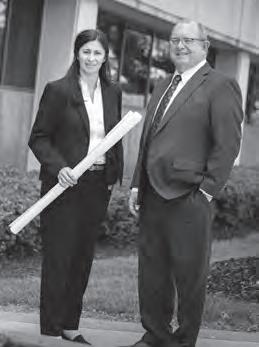
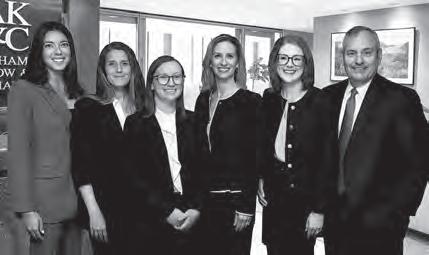
































Na’ama is the proud mother of three lively kids, and married to Eli. Their family includes Imry, who is nine, Tomer, who is 6, and their adorable almost three-year-old, Idan. In her own words:
I had the incredible opportunity to serve as a Jewish Agency Shaliach in Omaha from 2011 to 2012. It was a transformative experience for me that shaped my connections with the Jewish communities in the diaspora.
After returning from my shlichut, we lived in Jerusalem for several years, and since 2015, we’ve called Gedera our home. Since returning to Israel, I have worked in the field of Learning Technologies and Information Systems. It’s been a journey of growth, both personally and professionally, and I’m grateful for the connections and experiences that continue to inspire me.
I deeply miss all the wonderful people I had the chance to meet and get to know in Omaha, especially my host families, the Tene and Finkel families. I also greatly miss Diane Malashock, who has passed away. I remain in touch with many members of the community and staff at the Jewish Federation, the JCC, and at the synagogues. I would love to visit and reconnect with everyone.
opportunity to lead one of the sessions during Hanukkah. My Oct. 7 experience
On the morning of Oct. 7th, my family and I were camping at Ma’ayan Baruch, located right on the northern border near Kiryat Shmona. We woke up to a frightening and chaotic reality, unsure of what was happening around us. We didn’t know whether to return home to Gedera, where rockets were incessantly falling, or to stay put, knowing that Hezbollah might launch an attack at any moment.
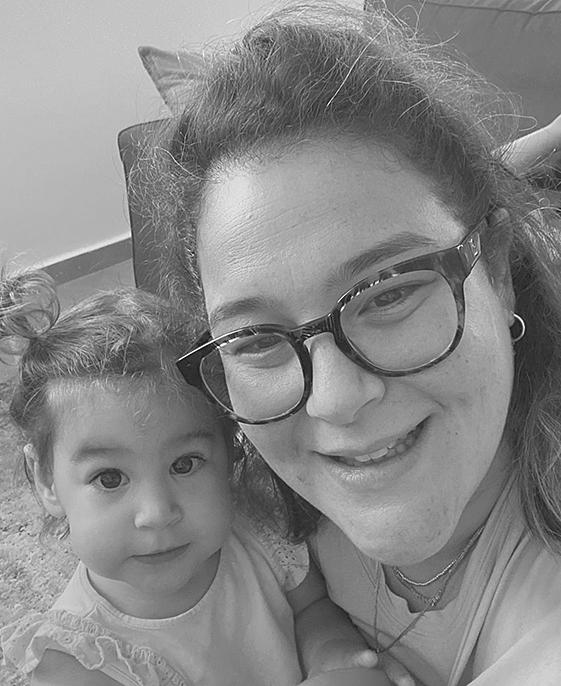
One project that remains particularly in my mind is the cooking class at Beth El Synagogue. I thoroughly enjoyed sharing beloved recipes with the community and was especially thrilled when my grandmother, who came for a visit, had the
We quickly packed our belongings and began driving south, towards home. Despite the ongoing rocket fire, we managed to reach Gedera. By evening, my husband, Eli, was called up for reserve duty in Gaza. Since then, he has already completed over 200 days of reserve service, during which I’ve been alone with the children while he’s been fighting in Gaza.
Over the past 11 months, we, together with all of Israel, have been praying for the swift return of the hostages, just as we prayed for Gilad Shalit’s return while I was on shlichut in Omaha. We also pray for the safety of all soldiers and the injured, and we stand with the families of those who have lost their loved ones. We have also lost friends.
I was deeply touched when friends from Omaha reached out and expressed their concern for our well-being. Their support during this challenging time has meant a lot to me.







Eliad Eliyahu Ben Shushan has been the Partnership Director of Yokneam Megido Atlanta St. Louis since 2016, and the Jewish Federation’s representative in Israel since 2021. He lives in the mixed city of Acco with his wife and six children, a place where Jews and Arabs live side by side. This coexistence brings to light many sensitive issues, especially after the riots of 2021 and during the current wartime.
Between 2013-2016, Eliad served as the senior community Shaliach in Omaha, accompanied by his wife, Sara, who taught at Friedel Jewish Academy. Three of their children were part of the community as students at the CDC and Friedel Jewish Academy. Their son Ittiel was born in Omaha and went to school at the CDC! During this time, Eliad worked to strengthen the Omaha Jewish community’s ties to Israel and foster greater understanding and engagement through numerous impactful initiatives.
After the Oct. 7 Hamas massacre, Eliad took a leading role in assisting evacuees from southern Israel. He concentrated his efforts on survivors from Kibbutz Nahal Oz, who were relocated to Kibbutz Mishmar Ha-Emek in the Megido region. Eliad led roundtable discussions with key stakeholders in Israel to plan the long-term rehabilitation of the kibbutz during one of its most critical times.
In addition to his leadership work, Eliad is a talented musician, with several of his songs charting on the Israeli music scene.
In his own words: A memorable experience
Choosing just one memory from my time as a Shaliach in Omaha is difficult. Should I mention the ‘Eye on Israel’ program, where I hosted so many incredible speakers? Or the time I experienced my first tornado in Nebraska? Perhaps my first joyful Sukkah hop, moving between synagogues with my guitar in hand?
If I had to pick one project, it would be the Intergenerational International Holiday Activities, where we connected residents of the Blumkin Home with children from Friedel Jewish Academy and the Early Learning Center. We opened Skype to connect with our friends in the Western Galilee. These activities showed how we could celebrate together, no matter the distance. The support from all the Omaha Jewish organizations in making this possible was something I cherished deeply.
I also remember the ‘Protective Edge Operation,’ when the community gathered for a rally at the JCC. I blew the shofar, feeling the strength and solidarity of Omaha’s Jewish community, standing together both in times of peace and during conflict.
My Oct. 7 experience
Every Jew has their own story from Oct. 7, 2023. That day, I was up north in Yesod HaMa’ala, near Kiryat Shmona, visiting my in-laws. We first learned of the Hamas attack when someone entered the synagogue asking the reservists to check their phones, even though it was Shabbat. Instantly, fear spread as we began to worry about our family members in the military. There was a real concern that war could break out in the north as well.

After Shabbat ended, we returned to Acco. It was only on our way back, when we turned on the radio, that we realized the scale of the catastrophe. Since then, I have been balancing the personal challenges of living in a mixed city that also faces rocket fire with my professional responsibilities, including assisting the evacuees from Kibbutz Nahal Oz who have relocated to our Partnership region following the massacre. One of the things that will always stay with me is how I approached the ‘Israel Updates’ during my time in Omaha.
Whether I was teaching at synagogues, speaking at the Blumkin Home, or during the ‘Eye on Israel’ program, I made it a point to showcase how the same news was reported across different Israeli newspapers and TV channels, and sometimes even international outlets. I believed that to truly represent Israel, we had to reflect the incredible diversity of opinions within the country.
See Eliad Eliyahu Ben Sushan page B5
Continued from page B3 for the safe return of all the hostages to their homes and for the war to end.
We are very fortunate that no one from our family or close friends have been hurt during the attack of Oct. 7. However, this could not be said for some of our friends and members of our community. One example is Lior Rudaif (61), the father of my friend and next-door neighbor Noam, from Kibbutz Nir Yittzhak, who was killed on October 7 while bravely attempting to defend his home. His body is still being held by Hamas in Gaza. Idan Alexander, an Israeli-American soldier who came to our Kibbutz with the Tzabar program, was also kidnapped on October 7 and we pray for his safe return. Several other families and friends from our community have lost loved ones during October 7 and the subsequent war.
I hope for peace and a better future.
My name is Yoni Doron, I’m 35 years old and I live in the (usually) holy city of Jerusalem with my partner (in extracurricular crime) Hadass, our newly born (and majestic) daughter Ya’ara and our (devilish) black cat Shuri. I was a Shaliach in Omaha for (sadly, only) one year between 2017-2018, right between my bachelor’s degree and my master’s. I grew up in Gilon, a small village in the beautiful hills of the southwest Galilee (yes! It’s right next to Omaha’s partnership region) and since, have lived all over the country. I am currently doing my Internship as a Clinical Psychologist at Hadassah Ein Karem hospital, enjoying it immensely and learning a great deal every day. Lately, I’ve been involved with the opening of a brand new treatment center for addiction in Mount Scopus (where the Hebrew university resides) that will offer treatment to the diverse population of the entire Jerusalem region and that is something that I am very excited about and looking forwards for.
would be one of the early birds and just grab a random seat in the crowd. So imagine my surprise and how red my face got when I walked in to a full house of worshipers, com-

I’ll tell a bit of a funny/embarrassing story of mine from the beginning of my Shlichut. I had just arrived in Omaha when the High Holy Days were starting and I was so busy getting to know the community, understanding the role of the Shaliach and dreaming up ideas for events that I would often stay at the office after hours. So for Yom-Kippur, not really knowing too many people yet or any of the Temples very well, I decided I would just drop by one of them after I finished working. So when I got to Beth El Synagogue 30 minutes late, using my Israeli-Secular logic, I figured I
munity members for whom this was their first encounter with me, all stopping in the middle of the main prayer to turn and look who is this rude person walking in mid-service. At that moment I thought I was a goner. Luckily, I was quickly embraced by the people there and a place was found for me in the aisles.
As for my favorite memory, that is a very difficult question for me to answer, almost like choosing a favorite child! I truly gave my heart and soul to most of my projects. Some bore many fruits and others never came into fruition. For instance – one event I was especially keen on when I just arrived was bringing the Israeli band “Lola Marsh” to play in Omaha








in front of the entire community. Their music is in the English language and coincidentally, they were touring the US and were to play in the Midwest around March. After giving it my best shot, I found out that producing a big live show on such short notice was a big feat for a newbie Shaliach. Even so, I didn’t give up on trying to make things happen in a relatively short timespan.
For instance: The event I am most proud of during my time as a Shaliach was called “Four Cups of Freedom.” It was a round table debate held around the time of Passover (hence the name) centered around the concept of immigration and freedom in Israel and America, topped with a fine selection of Israeli wine I worked really hard to locate. For such a debate to be challenging and engaging, I joined forces with my friends at the Harris Center for Judaic Studies and The Schwalb Center for Israel & Jewish Studies, and so, the brilliant Ari Kohen and Patrick McNamara presented the different topics and views with a short lecture. Even though only 40 people arrived, we felt like the event was a great success. The conversation was enthralling, people were hungry to talk about these issues face-to-face. We were surprised to see new faces of people who never before attended a Federation event. And of course, the wine helped us get into the mood of freedom and togetherness.
When I first thought out the concept for this event, I was told there wasn’t enough time to plan such a thing, let alone get people engaged and actively choose to attend this event rather than what was already on the calendar. I had to learn the hard way that in America, people plan their schedule months in advance, unlike Israelis who are a bit more on the spontaneous side – opting to plan their whereabouts two weeks in advance (tops). But despite these warnings, I really felt like this was something I needed to do, something
special I could bring to Omaha as a Shaliach, an event that really utilizes the connection to Israel as a means of bringing us closer as a Jewish community and as people. And I have to thank Nate Shapiro (who was my supervisor at the time) for encouraging me to pursue my wild pipe dreams and the relentless Marketing department (Margie, Lynn and Carissa) for helping me spread the word about them.
I would come back to Omaha for my family.
I guess I should say “for the people” or “my friends,” but what was so amazing to me during my Shlichut was that in the span of one year, I managed to make such connections with so many amazing people in the community (and honestly, even some outside of it), that I feel they are my family.
And since I left, I’ve constantly felt like a part of me was somewhere else. I’m constantly longing to come back to this second home of mine and reunite with my American family.
Being hosted for Shabbat dinner, or See Yoni Doron page B7
Continued from B4
This practice gave my audience a deeper understanding of Israel’s complexities, and it sparked meaningful discussions. To this day, I enjoy comparing different news sources, as it helps me stay connected to the rich tapestry of perspectives in Israel and reminds me how every sector interprets events in its own way.






















































































Sivan Cohen was the Omaha community shlicha from 2021 to 2023. Sivan is from Akko, an ancient city in the northern part of Israel. Akko is part of the Partnership2Gether international program.
Since moving back to Israel, Sivan has worked as a wine connoisseur for a famous Israeli winery as well as a physical therapist and a youth guide. She went to study acupuncture in Switzerland and recently came back to the United States for a few weeks as a mishlachat (emissary) to a Jewish camp in West Virginia. Outside of work, Sivan continues doing what she likes best — traveling. Recently, Sivan relocated to Europe and will soon start to earn a master’s degree in physiology.
What is your favorite memory from the shlichot?
Well, there are definitely a lot of good, funny and exciting memories. I really enjoyed helping organize Yom Ha’Atzmaut celebrations and seeing community members come together to celebrate Israel’s birthday.
Overall, I am happy I got to meet warm and loving community members and work closely with the diverse organizations in town. Outside of work, I loved the time that I travelled and explored the U.S., especially Nebraska. What was your favorite project?
I loved all the projects, including new ones I created and ones I continued as
traditions. All were fun and exciting, but my pride and joy was the L’chaim project. L’chaim events let people test, mix and say cheers with Israeli spirits, beer and wine, exposing them to a lesserknown aspect of Israeli culture. Creating cocktails based on Jewish-Israeli culture

was a blast, and seeing people enjoy and be surprised was great!
What is the thing that you will come back to Omaha for?
Ranch dressing. If you know, you know. What was your experience on Oct. 7th?
On Oct. 7th, I was supposed to move to Jerusalem for a while. I can still remember the tension in the air on that day. I wasn’t immediately aware of the
news, but I felt that something was wrong. The police were sending everybody home and didn’t allow anybody in the streets. There was also heavy Air Force and Navy activity.
Gradually, when horrifying stories and information started to spread, it was shocking, traumatizing and scary. Hearing about the massacre, rape and burning of innocent people inside the State of Israel was unbelievable and just made everybody freeze.
Shortly afterward, in the northern part of Israel where I lived, missiles started being fired. It was chaotic — we were running to our shelters every few minutes. Everything shut down. Some of my friends lost their properties and had to be evacuated. The stress and the fear took over everybody.
Eventually, I had the opportunity to volunteer as a physical therapist for soldiers that took part in the combat after October 7th. The project I was part of remains important and significant, happening once a week to allow our courageous soldiers to take a moment to relax and recover from the horrible things they are going through.
Luckily, I also got the chance to take part and continue being a shalicha in Israel. Children that lived in the South and were evacuated from their homes got to come to a summer camp right in the See Sivan Cohen on page B8
Ron Lugasy was born and raised in Had Nes, a Yeshuv in the Golan Heighs. She was the Omaha Shlicha from 2018 to 2020. Today she lives in Kefar Yedidia, a Moshav in Emek Hefer region, and studies visual communication at Shenkar College. She also works as a bid pricing specialist at a construction company.
In her own words: My favorite memory from the shlichut, and my favorite project, were the cooking workshops. It was an opportunity for me to meet a unique variety of people, creating a common language through food. I told the Israeli story through food, but beyond that, I heard stories that I wouldn’t have known in any other context.

Surprisingly, one of the things I miss the most is the Omaha winter. Although it was cold outside, the warmth of the people, the big hugs, and the support I received at every stage made the winters warm and beautiful.
My Oct. 7 experience
Oct. 7 was a day that shocked me, like everyone else. I never imagined that something like this could happen. It shattered our sense of security as Israelis. The pain of loss, the unending concern for the captives, the soldiers on the front lines, and the evacuees, do not let up; even a year later, the tightness in my stomach does not ease.
At the same time, the warmth and support I received from the Omaha community, the messages, the concern, and the love are not taken for granted.
Omaha is my home away from home; it is a very significant part of my life. I came to teach and left having learned. The Jewish community in Omaha is unique in every way, with its human capital and sense of community, and its warm hospitality is indescribable.
If not Israel, second best is Omaha.



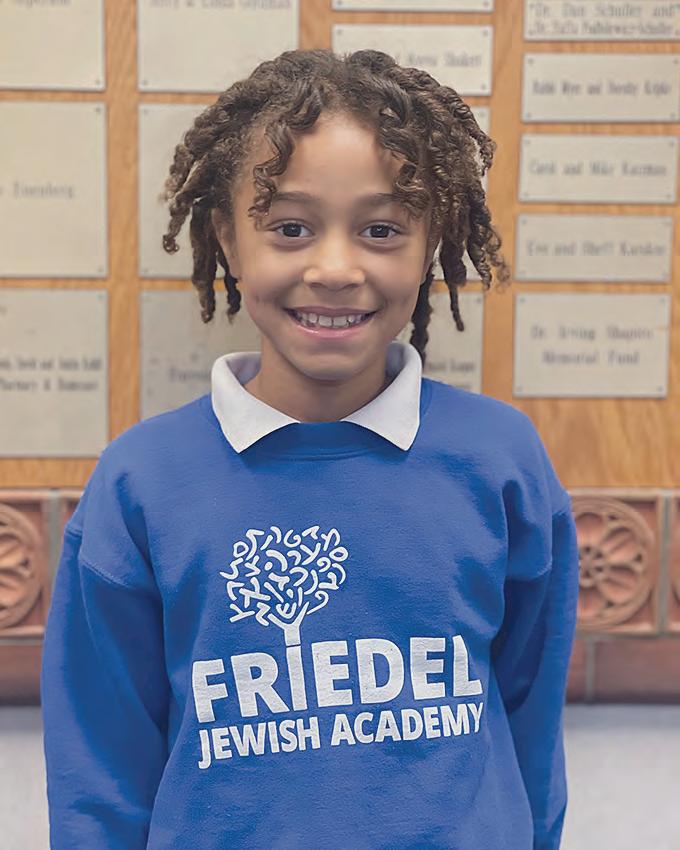


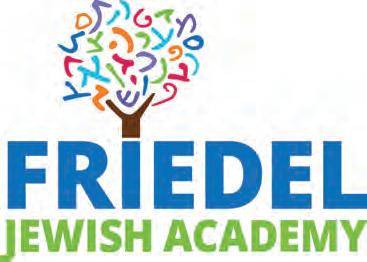







Continued from page B5
meeting someone randomly at the JCC, at an event or for Deli at the Blumkin Home. I would do anything to visit Omaha and just spend time with everyone. And I give a big shout-out to my co-workers at the Federation, who were the ones who kicked off that sense of belonging!
So now that I’ve given the necessary (and rightful) answer, I have to say that I really miss and really look forward to return to Omaha for the Alamo Drafthouse Cinema. Now, this might seem random or out of left field to most, but for those who know me – my love of film and the cinema-going experience is something they’re all aware of. Funny story –coincidentally, while I was in Omaha there was a (now bankrupt) startup called “MoviePass” which let you watch any movie you like, at any day, for the price of $10 a month (or something ridiculous like that). I think that year I saw an average of 1 movie a week and thanks to the curated itinerary of the Alamo cinema, I got to watch some classics that have evaded me (such as Casablanca) or others I never got to watch on the big screen (Blade Runner). That place became so familiar, you can say it was my fourth temple in Omaha.
and instead of saying “hi” or “good morning”, just plainly told me: “There’s a war in Gaza.” When such a bizarre sentence comes out of a sweet seven-year-old girl’s mouth – you know it to be true. And I’m still distressed with what resolve I managed to play out the rest of that day. I think it just made me understand how underneath every one of us living in Israel, even in the most relaxed of times, there is still a part that is ready for the next conflict, the next brutal attack. We are happy and joyful but always vigilant in our way.
What I wasn’t ready for (and of course, nobody was), were the horrors of the 7th. I think in the beginning I was waiting for an update about how this trickling information might be overblown or misguided. It was just me not being able to grasp how could this all be true. All of it, and all together. This was something I only heard of when my grandfather described to me the Yom Kippur War. The shock
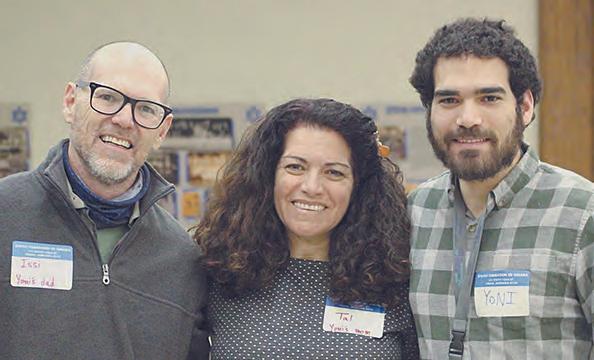
I am very conflicted about telling my story of the 7th of October. On the one hand, for the whole time I was in combat in the Gaza strip, with our country’s wounds still open and bloody and the news of the big anti-Israel protests all over the world hitting us in the face every day, I constantly thought about sharing my experiences and thoughts with my people in Omaha. I would imagine what I would write in the Jewish Press, an inspiring message, an interesting opinion, a unique perspective. But I couldn’t bring myself to sit down and write anything. I guess that first, I (and we all) need this nightmare to be over, to be able to take a breath before I can start putting my words down properly. I need the hostages to come back alive and reunite with their families. I need for this horrible war to end. I’m exhausted and I’m scared. I think that, for now, what I can share is a snapshot of our life in that moment. I think in all of this war, most people outside of Israel forget that we are just people who live their lives and want to live in peace. So I would like to emphasize that aspect of my story as well. In the morning of the seventh Hadass (my partner) and I were visiting her family in the Arava (the south most part of Israel). We had just celebrated her mother’s 70th birthday the night before with lots of songs and laughter and had an early morning flight to Italy waiting for us the following day (on the 8th), our first flight together as a couple! So we were in a rush to get our things packed and start heading back north to Jerusalem. It’s really so ridiculously ironic the timing of it all, how that old, worn out saying of “man plans and God laughs” can really prove its point at the worst possible moment. Hadass and I were at the last stretch of a very stressful time in our lives and were looking forwards to that vacation so badly; we set our sights on that trip to spend some quality time together and recharge our batteries, with each of us having finished pretty big projects at our respective work places. And so, when I woke up during that Saturday morning, my mind yearning only for coffee, it took that same mind a few moments to register my next experience –Hadass’ seven-year-old niece came up to me


and the realization that from now on everything will change. And again – most people outside of israel don’t realize how small this country is. Here, we all know each other. There’s even a concept called “connected vessels” about how every Israeli is connected to the next by at least one other person. So when these things happen, it’s not something that’s happened “over there”. It’s always close to home.
I knew I was about to be enlisted. I served in the paratroopers’ special forces when I was in my mandatory army term, and today serve in a similar infantry reserve unit. So hearing the magnitude of the attack, I immediately knew I was needed and started preparing Hadass for what was to come. That might be one of the hardest things I’ve ever done, saying goodbye to the person I love, not knowing where I’m heading or when will I see her again. But that’s the thing with our service here in Israel, you’re not only committed to protecting your country or your family and friends, you’re committed to your Army family, your brothers in arms. That is almost like a second family you have out there, and the love we have for each other is of a different kind, one which is very difficult to put into words. So even if it was almost impossible for me to say farewell to one family, I was set in my mind to come stand next to my other.
For the next 100 days, I was in active service, most of them spent in combat inside the Gaza strip. You will forgive me but I will not go into detail about that part of the story. Maybe someday soon I’ll feel able to do that more freely. But what I will say, what I’ve wanted to say since many, many times over, is how grateful I am, we all are, to all the amazing, beautiful souls in Omaha who contacted us, sent us a message of kind and caring words, and the ones I knew held us silently in their hearts. It’s an empowering experience like I’ve never felt before. A relentless stream of warmth and care. All I can say is that I hope someday I will be able to give back that wonderful energy and that I hope that this connection we have, will shine bright making sunnier days come.

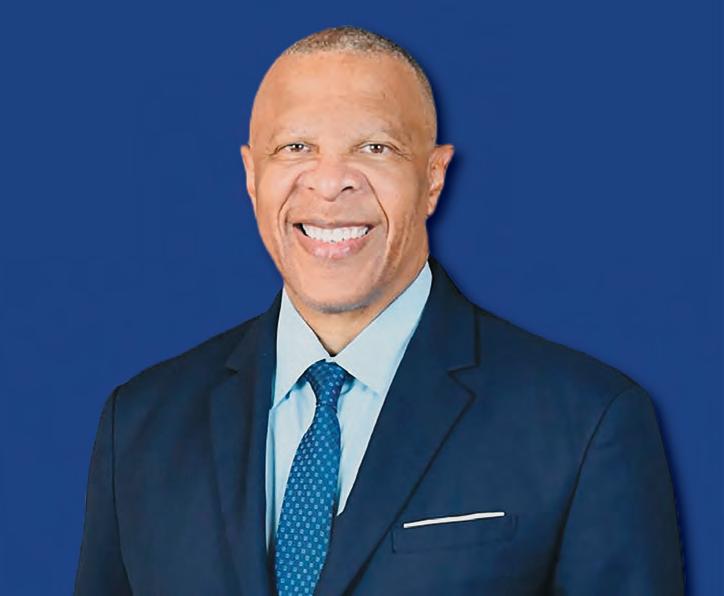







No overview of years of Shlichim is complete without including our current Shlicha, Mika. If she’s not at the Jewish Federation, she’s at a conference, or at a young adult event, or in one of our religious schools. We still have a few months left, so if you haven’t yet experienced her one-of-a kind enthusiasm and passion for all things Israel, make sure to catch her! In her own words:
I am 23 years old and am the current Omaha Shlicha. I was born in Zichron Ya’akov, and in 2014 my family moved to Had-Nes, a small yeshov (village) in the Golan heights. I am the youngest in a family of five.
After graduating high school, I served in the IDF for three years and three months. I was an officer in HR, holding a few different positions. After the IDF, I pursued my passion of dancing and performing. I worked as part of the Talent Team at a resort near the Dead Sea.
Even though the only things I knew about Nebraska were that it snows and has lots of corn, I was still excited to move here in September 2023.
and help. I cherish these gestures because I had no idea how many people cared so deeply about a small country on the other side of the world.
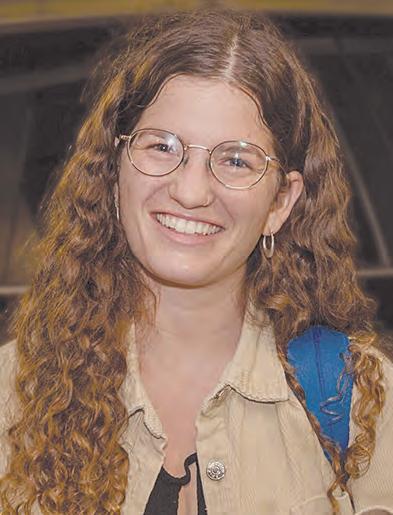
It’s hard for me to pick a favorite project. I really loved hosting a Purim Party for the JFO staff. Purim is my favorite holiday. It was a lot of fun to share this with my co-workers, especially those who had never heard of it before. In 2024, we had a costume contest, snacks, a selfie station and a “make your own hamantaschen” station. I dressed up as a NEBRASKAN for the occasion and offered shots of corn for the full Nebraska experience.
Having Oct. 7th happen shortly after arriving here has affected me in ways I could have never imagined. Something I will never forget is the way it felt to see the Omaha Jewish community (and beyond) rally in support of Israel. I learned that here, everyone shows up and stands up together. They listen closely and will ask lots of questions or offer lots of hugs
Some people apply for jobs, while others are born to do them.
Mark Kelln, Beth El Synagogue’s Education Director, is one such individual. If there were, in fact, an “E for Effort” grade, this guy would snatch it up, easily, every time, all day!

“I’ve been in Omaha since 2001,” said Kelln. “My wife grew up here; grew up at Beth El back in the ‘90s. I kind of try to take care of everything having to do with kids. So primarily, that’s our religious school, which we call BEST: Beth El Synagogue Talmud Torah.”
Kelln is no stranger to the education system. He has literally made it his life’s work. In fact, prior to his current post, his background was in public education.
“I was in Public Education, here in Omaha, for 21 years,” recalled Kelln. “I taught at OPS. I was a fifthand sixth-grade teacher, Instructional Facilitator, and Assistant Principal. For the last 11 years, I was Principal at Adams Elementary.”
In 2020, the COVID-19 pandemic began. While COVID kept many people indoors, Kelln’s dedication to education continued despite the challenges posed by the pandemic.
To experience Oct. 7th outside of Israel, thousands of miles away from my family and friends, was extremely hard. When I walked outside that day, Omaha was moving like normal. For me the world had stopped. Every day was hard. Many of the soldiers I led while in the IDF were still serving. I could only watch on social media instead of helping, hugging, or attending funerals. Even though I had support here, it hurt knowing that I couldn’t be there for those closest to me. All of this changed what my job here would look like, and how it would feel to be an Israeli ambassador. I was, and am, honored to represent Israel within this amazing community. I have been comforted by the warmth and love shown to me and my country. This experience has shown me what it is like to be an Israeli outside of Israel. Jewish people all around the world care and connect so much, it made me even prouder to be Jewish. I am grateful to everyone in Omaha who have shared their homes and tables with me. I know I will make even more memories before my time here is done.
Continued from B6
center of Israel. Some had lost friends and family. I worked to support and help the children in their hard times. Life in Israel has been very hard since October 7th, but we are a strong country and a strong people. My time in Omaha taught me that no matter where we are in the world, us Jewish people are always here for each other.
And that’s where being a man of many hats comes in handy. After all, his role encompasses not just the religious school but also a variety of programs designed to engage children of all ages and their families in Jewish learning and community activities. By tirelessly juggling responsibilities and creating meaningful experiences, Kelln ensures that the educational needs of Beth El’s young members are met with enthusiasm and dedication.
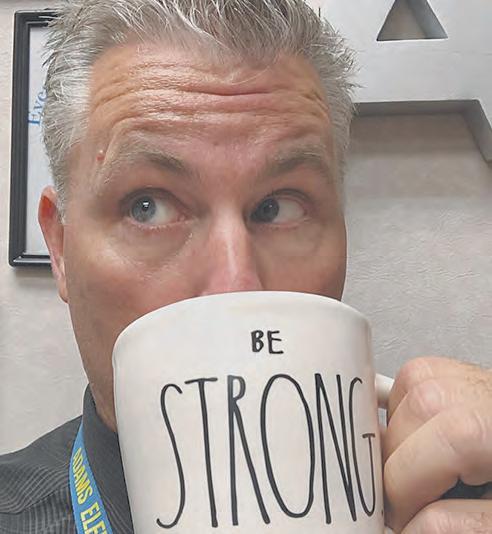
In fact, Kelln decided to double-down on his efforts to make his students’ education his primary mission, making it that much more steadfast in his dedication to the students he had spent so much of his career trying to prepare them for, as an uncertain future loomed.
Yet, Kelln made it a point to suit up and show up, becoming that much more of an integral part of his students’ Jewish Education. His keen ability to adapt and innovate the inner workings of Beth El Synagogue, as the world slowly began to wake up and go outside again, only increased.
The Jewish Education Director took on a multitude of roles, ensuring that every aspect of the children’s educational journey was covered, from the religious school to the various programs aimed at engaging young minds, creating a sense of community.
Kelln has enthusiastically and dedicatedly met the educational needs of Beth El’s young members by effectively managing responsibilities and creating meaningful experiences.
“So, on Sundays, we have our kindergartners through seventh grade; and then on Wednesdays our third through seventh grade. Twelfth graders are also teacher aides and they contribute to what we’re able to do. And then we also have a tour for pre-kindergarten on Sunday mornings, and our tot Shabbat, which is Friday night, like a Friday night Family Service for the youngest kids.
I also do the youth group stuff. That is our Kesher youth group, which is like the fifth to eight grades, and then we have USY Youth group.”
Kelln’s excitement about the Jewish educational experience is clearly reflected in the curiosity and zeal of his students, who not only engage with their studies but find joy and meaning in the learning process.
The community has recognized his dedication to creating engaging educational experiences, underscoring the significant impact of his work. However, at the end of the day, it’s less about his own role as a professional educator than it is about what he sees his students getting out of it.
To illustrate this sentiment, Kelln described one of his favorite moments as Beth El’s Education Director; a moment that was a stark contrast to his own days as a young Jewish student.
“We had a family that was new to town, and they were thinking of [joining],” said Kelln. “We were giving them a tour [of Beth El] while Wednesday [classes] was going on, and we had a group of kids out in the hallway, pretty typical, working on some Torah service prayers, and the parents asked, ‘Are they just reading Hebrew? Like, just by themselves?’ They just recognized that our kids aren’t just skilled and talented, but they enjoy doing it.”



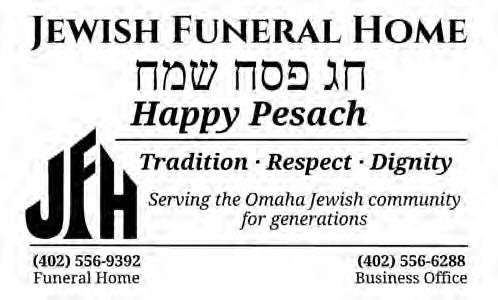





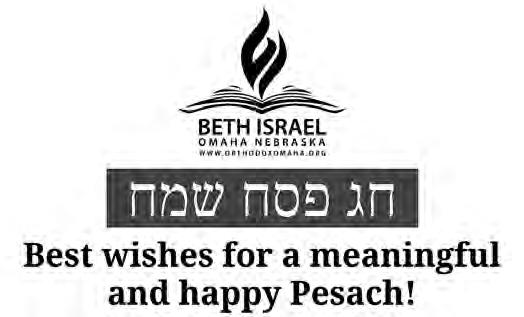





B’NAI ISRAEL
SYNAGOGUE
618 Mynster Street Council Bluffs, IA 51503-0766
712.322.4705 email: CBsynagogue@hotmail.com
BETH EL
SYNAGOGUE
Member of United Synagogues of Conservative Judaism 14506 California Street Omaha, NE 68154-1980
402.492.8550 bethel-omaha.org
BETH ISRAEL
SYNAGOGUE
Member of Union of Orthodox Jewish Congregations of America 12604 Pacific Street Omaha, NE. 68154
402.556.6288 BethIsrael@OrthodoxOmaha.org
CHABAD HOUSE
An Affiliate of Chabad-Lubavitch 1866 South 120 Street Omaha, NE 68144-1646
402.330.1800 OChabad.com email: chabad@aol.com
LINCOLN JEWISH COMMUNITY:
B’NAI JESHURUN
South Street Temple
Union for Reform Judaism
2061 South 20th Street Lincoln, NE 68502-2797
402.435.8004 www.southstreettemple.org
OFFUTT AIR
FORCE BASE
Capehart Chapel 2500 Capehart Road Offutt AFB, NE 68123
402.294.6244 email: oafbjsll@icloud.com
ROSE BLUMKIN
JEWISH HOME
323 South 132 Street Omaha, NE 68154
TEMPLE ISRAEL
Union for Reform Judaism (URJ) 13111 Sterling Ridge Drive Omaha, NE 68144-1206
402.556.6536 templeisraelomaha.com
LINCOLN JEWISH COMMUNITY:
TIFERETH ISRAEL
Member of United Synagogue of Conservative Judaism 3219 Sheridan Boulevard Lincoln, NE 68502-5236
402.423.8569 tiferethisraellincoln.org
Monthly Speaker Series Service, Friday, April 11, 7:30 p.m. with our guest speaker. Our service leader is Larry Blass. Everyone is always welcome at B’nai Israel!
For information about our historic synagogue, please visit our website at www.cblhs.org or contact any of our other board members: Renee Corcoran, Scott Friedman, Rick Katelman, Janie Kulakofsky, Howard Kutler, Carole and Wayne Lainof, Ann Moshman, MaryBeth Muskin, Debbie Salomon and Sissy Silber. Handicap Accessible.
Services conducted by Rabbi Steven Abraham and Hazzan Michael Krausman.
IN-PERSON AND ZOOM MINYAN SCHEDULE:
Mornings on Sundays, 9:30 a.m.; Mondays and Thursdays, 7 a.m.; Evenings on Sunday-Thursday, 5:30 p.m.
FRIDAY: Kabbalat Shabbat, 6 p.m. at Beth El & Live Stream.
SATURDAY: Shabbat Morning Services, 10 a.m. at Beth El and Live Stream; Jr. Congregation (Grades K12), 10 a.m.; Havdalah, 8:30 p.m. Zoom Only.
SUNDAY: BESTT (Grades K-7), 9:30 a.m.; Hands On Judaism, 10:30 a.m. with Hazzan Krausman.
TUESDAY: Mishneh Torah, 10:30 a.m. with Rabbi Abraham
WEDNESDAY: BESTT (Grades 3-7), 4 p.m.; Hebrew High (Grades 8-12), 6 p.m.
THURSDAY: Shacharit/Siyyum B’khorim, 7 a.m. at Beth El & Zoom.
FRIDAY-Apr. 11: Kabbalat Shabbat, 6 p.m. at Beth El & Live Stream.
SATURDAY-Apr. 12: Shabbat Hagadol Zimra, 10 a.m. at Beth El and Live Stream; Jr. Congregation (Grades K-12) 10 a.m. Please visit bethel-omaha.org for additional information and service links.
FRIDAY: Nach Yomi, 6:45 a.m.; Shacharit, 7 a.m.; Mincha/Kabbalat Shabbat, 7 p.m.; Candlelighting, 7:35 p.m.
SATURDAY: Shabbat Kollel, 8:30 a.m.; Shacharit, 9 a.m.; Tot Shabbat 10:30 a.m.; Youth Class 10:45 a.m.; Soulful Torah, 6:40 p.m. with Rabbi Geiger; Mincha, 7:20 p.m.; Kids Activity/Laws of Shabbos, 7:50 p.m.; Havdalah, 8:36 p.m.
SUNDAY: Shacharit, 9 a.m.; Duties of the Heart, 3 p.m. with Rabbi Geiger at the JCC; Mincha/Ma’ariv 7:40 p.m.
MONDAY: Nach Yomi, 6:45 a.m.; Shacharit, 7 a.m.; Monday Mind Builders 4 p.m.; Mincha/Ma’ariv 7:40
p.m.
TUESDAY: Nach Yomi, 6:45 a.m.; Shacharit, 7 a.m.; Mincha/Ma’ariv 7:40 p.m.
WEDNESDAY: Nach Yomi, 6:45 a.m.; Shacharit, 7 a.m.; Mincha/ Ma’ariv, 7:40 p.m.
THURSDAY: Nach Yomi, 6:45 a.m.; Shacharit, 7 a.m.; Character Development, 9:30 a.m.; Mincha/ Ma’ariv, 7:40 p.m.
FRIDAY-Apr. 11: Nach Yomi, 6:45 a.m.; Shacharit, 7
ANNETTE VAN DE KAMP-WRIGHT
Jewish Press Editor
In 2024, staff at the Early Learning Center decided to make some changes to the way in which they teach their young students about Passover.
“It was inspired by my parents’ seders,” Amy Dworin said. “Nowadays, we have multiple generations at the table, and there are years’ worth of Pesach-inspired arts and crafts projects crammed around the room. Most of these go beyond the usual plastic kiddush cups and modgepodge placemats; they are items that were meant to last. I realized we needed to step up our game!”
The items at Amy’s parents’ house have lasted for decades. Remembering what was made when, and by whom, has become an integral part of the Pesach celebration. “I wanted to bring these lasting childhood memories and traditions into our school as well,” she said.
The ELC staff began planning meticulously. They asked themselves: how do you tell the same story to different grades, when the students are so young? They added a “Babies in Baskets” project,
a.m.; Mincha/Kabbalat Shabbat, 7 p.m.; Candlelighting, 7:42 p.m.
SATURDAY-Apr. 12: Shabbat Kollel, 8:30 a.m.; Shacharit 9 a.m.; Tot Shabbat 10:30 a.m.; Youth Class, 10:45 a.m.; Soulful Torah, 6:50 p.m. with Rabbi Geiger; Mincha 7:30 p.m.; Kids Activity/Laws of Shabbos 8 p.m.; Havdalah, 8:43 p.m.
Please visit orthodoxomaha.org for additional information and Zoom service links.
All services are in-person. All classes are being offered in-person and via Zoom (ochabad.com/academy). For more information or to request help, please visit www.ochabad.com or call the office at 402.330.1800.
FRIDAY: Shacharit, 8 a.m.; Lechayim, 5:30 p.m., go to ochabad.com/lechayim to join; Young Jewish Professional Shabbat Dinner, RSVP at ochabad.com/cyp; Candlelighting, 7:35 p.m.
SATURDAY: Shacharit 10 a.m. followed by Kiddush and Cholent; Shabbat Ends, 8:36 p.m.
SUNDAY: Sunday Morning Wraps, 9 a.m.
MONDAY: Shacharit 8 a.m.; Personal Parsha 9:30 a.m. with Shani Katzman; Intermediate Biblical Hebrew Grammar, 10:30 a.m. with Prof. David Cohen; ; Deli Style Kosher Bistro Night, 5 p.m. at Chabad, order at ochabad.com/bistro; Parsha Reading, 6 p.m. with Prof. David Cohen; Translating Words of Prayer, 7 p.m. with Prof. David Cohen.
TUESDAY: Shacharit, 8 a.m.; Translating Words of Prayer, 11 a.m. with David Cohen; Intermediate Biblical Hebrew Grammar, 6 p.m. with Prof. David Cohen; Introductory Biblical Hebrew Grammar, 7 p.m. with Prof. David Cohen
WEDNESDAY: Shacharit, 8 a.m.; Mystical Thinking (Tanya) 9:30 a.m. with Rabbi Katzman; Introductory Biblical Hebrew Grammar, 10:30 a.m. with Prof. David Cohen; Parsha Reading, 11:30 a.m. with Prof. David Cohen.
THURSDAY: Shacharit, 8 a.m.; Introduction to Alphabet, Vowels & Reading Hebrew, 10 a.m.; Advanced Biblical Hebrew Grammar, 11 a.m. with Prof. David Cohen; Talmud Study, noon-1 p.m.; Introduction to Alphabet, Vowels & Reading Hebrew, 6 p.m.; Code of Jewish Law Class, 7 p.m.
FRIDAY-Apr. 11: Shacharit, 8 a.m.; Lechayim, 5:30 p.m., go to ochabad.com/lechayim to join; Candlelighting, 7:42 p.m.
SATURDAY-Apr. 12: Morning Services, 9 a.m.; Pesach Seder, 8:30 p.m. RSVP at ochabad.com/seder; Holiday Candlelighting after, 8:44 p.m.
LINCOLN JEWISH COMMUNITY: B’NAI JESHURUN & TIFERETH ISRAEL
Services facilitated by Rabbi Alex Felch. All services offered in-person with live-stream or teleconferencing options.
FRIDAY: Kabbalat Shabbat Service, 6:30-7:30 p.m. led by Rabbi Alex at SST; Shabbat Candlelighting, 7:37 p.m.
SATURDAY: Shabbat Service, 9:30-11 a.m. led by Rabbi Alex at TI; Torah Study, noon on Parshat
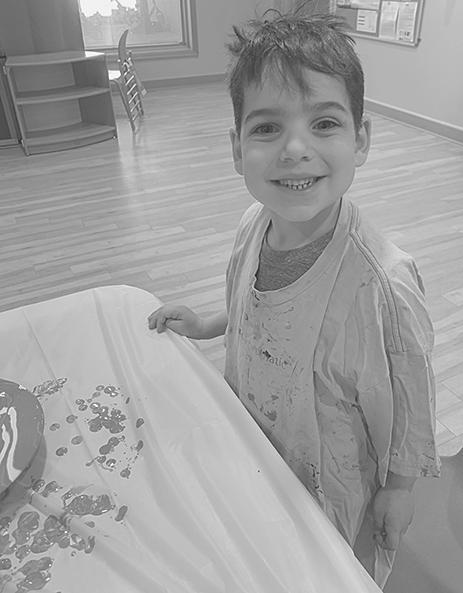
and took photos of
Vayikra led by TBD via Zoom; Havdalah, 8:38 p.m.
SUNDAY: LJCS Classes, 9:30-11:30 a.m. at TI; Men’s Bike/Coffee Group, 10:30 a.m. at The Mill on the Innovation Campus. For more information or questions please email Al Weiss at albertw801@gmail.com; LJCS Family Passover Education, 11 a.m.; Adult Ed: Intro to Judaism Class noon with Rabbi Alex at TI.
WEDNESDAY: LJCS Hebrew School: Passover. Program, 4:30-6 p.m. at TI.
THURSDAY: Fasting begins, 5:30 a.m.; Fasting Ends, 8:36 p.m.
FRIDAY-Apr. 11: Kabbalat Shabbat Service, 6:307:30 p.m. led by Rabbi Alex at SST; Shabbat Candlelighting, 7:44 p.m.
SATURDAY-Apr. 12: Shabbat Service, 9:30-11 a.m. led by Rabbi Alex at TI; Torah Study, noon on Parshat Tzav led by TBD via Zoom; Havdalah, 8:46 p.m.
FRIDAYS: Virtual Shabbat Service, 7:30 p.m. every first and third of the month at Capehart Chapel. Contact TSgt Jason Rife at OAFBJSLL@icloud.com for more information.
In-person and virtual services conducted by Rabbi Benjamin Sharff, Rabbi Deana Sussman Berezin, and Cantor Joanna Alexander.
FRIDAY: Drop-In Mah Jongg, 9 a.m. In-Person; Shabbat Byachad Service with Grades Four and Five, 6 p.m. In-Person & Zoom.
SATURDAY: Torah Study, 9:15 a.m. In-Person; Shabbat Morning Service, 10:30 a.m. In-Person & Zoom.
SUNDAY: Grades PreK-7, 9:30 a.m. In-Person; Prayer Preparation: Chanting and Reading Prayers, 1 p.m. In-Person.
WEDNESDAY: Yarn It, 9 a.m. In-Person; No Youth Learning Programs this week
THURSDAY: The Zohar: Thursday Morning Class, 11 a.m. with Rabbi Sharff — In-Person & Zoom.
FRIDAY-Apr. 11: Drop-In Mah Jongg, 9 a.m. In-Person; Shabbat Byachad Service, 6 p.m. In-Person & Zoom.
SATURDAY-Apr. 12: Torah Study, 9:15 a.m. In-Person; Shabbat Morning Service, 10:30 a.m. In-Person & Zoom.
Please visit templeisraelomaha.com for additional information and Zoom service links.
As of Jan. 1, 2025, the Jewish Press will charge $180 for the inclusion of standard obituaries, up to 400 words. Photos may be included if the family so wishes. For many years, we have held off on making this decision. However, it is no longer financially responsible for us to include obituaries at no charge. For questions, please email avandekamp@ jewishomaha.org. Obituaries in the Jewish Press are included in our print edition as well as our website at www.omahajewishpress.com
feet, representing the parting of the Sea of Reeds. The Step-3 students made matza covers and while doing so, learned everything about matza and afikomen. Students aged 3 to 4 wrote their own Haggadah, by retelling the story of the exodus, which teachers than wrote down exactly as they said it. They might not get all the details exactly right, but it’s obvious they’ve heard the story a number of times.
“Children have a very special role at the Passover seder,” the accompanying text begins. “It’s a mitzvah to share the story of Passover to the children in a variety of ways, so that all learners can participate:
“Once upon a time in Egypt’s land,” one child said, “that’s in the desert, King Pharaoh was the king of the pyramids, that’s where Haman lives.”
“There were like frogs everywhere and darkness, spiders and bees,” said another. “The water was blood. I got blood too. He turned water into lava. The frogs were going in the pool, the blood pool, and the frogs got dead and nobody could go swim in the pool. But, the G-d people stayed in their homes.” See Lasting memories page B11
Continued from page B10
The pre-K class made glass seder plates and decorated them by pouring paint. They learned all about each item that goes on the plate. They also created each item, using clay.
“We worked with all individual teachers before Passover, made sure we bought all materials ahead of time,” Amy said.
“The overall idea of this is L’dor V’dor, because we all know how adults engage during the seder, but how do you engage the kids beyond the afikomen and the four questions? This way, they were able to learn details about the holiday, they repeatedly worked on the same project, since the art work was more robust and needed several sessions. They also learned about the process, how it takes time to create something lasting; what will it look like in the end? And instead of making a paper mâché plate five times, they make something that is sustainable. At their age, they may not totally get the deeper meaning of the holiday, and that’s okay; but they can learn certain elements are important.”






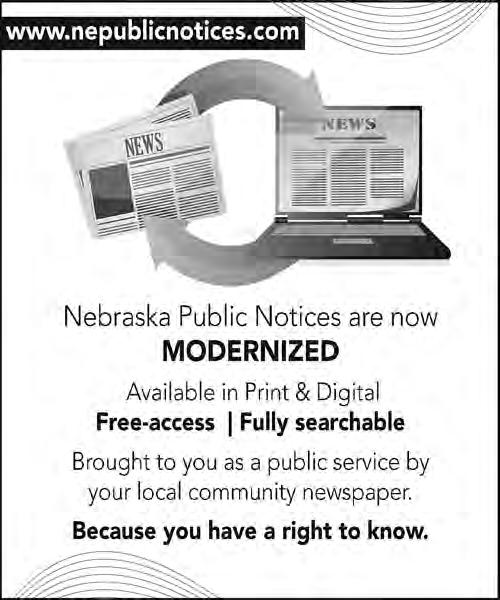
CLASSIFIED ADVERTISING works! Place your 25 word ad into thousands of Nebraska homes for $225. Contact the Jewish Press or call 1-800-369-2850.
HELLO NEBRASKA! Introducing www.nepublicnotices.com, a new public notice website presented as a public service by all Nebraska newspapers. Free access, fully searchable – because democracy depends upon open government and your right to know.
BANKRUPTCY RELIEF! Help stop Creditor Harassment, Collection Calls, Repossession and Legal Actions! Speak to a Professional Attorney and Get the Help You NEED! Call NOW 844-215-3629
AFFORDABLE PRESS Release service. Send your message to 155 newspapers across Nebraska for one low price! Call 1-800-369-2850 or www.nebpress.com for more details.
SPRING CRAFT Show. April 12, 9 a.m. - 2 p.m. Sutton Comm. Center,
200 S. Saunders, Sutton. Lots of great inside and outside vendors, food trucks, and more.
DENTAL INSURANCE from Physicians Mutual Insurance Company. Coverage for 350 plus procedures. Real dental insurance - NOT just a discount plan. Do not wait! Call now! Get your FREE Dental Information Kit with all the details! 1-855-490-4149 www.dental50plus. com/81 #6258
PORTABLE OXYGEN Concentrator? May be covered by Medicare! Reclaim independence and mobility with the compact design and long-lasting battery of Inogen One. Free information kit! Call 855385-3580.
IF YOU had knee or hip replacement surgery and suffered an infection due to use of a Bair Hugger (Blue Blanket), between 2020 and the present time, you may be entitled to compensation. Call attorney Charles H. Johnson 800/535-5727.
DOES YOUR basement or crawl space need some attention? Call Thrasher Foundation Repair! A permanent solution for waterproofing, failing foundations, sinking concrete and nasty crawl spaces. FREE Inspection & Same Day Estimate. $250 off ANY project with code GET250. Call 1-844-958-3431.

Kathy Goldstein
Dora Goldstrom
Mark Goldstrom
Alan Goodman*
David & Shirley Goodman
Andie Gordman & Dan Fitzgerald
Jay & Allison Gordman
Kip & Bridget Gordman
Linda* & Jerry* Gordman
Steven Gottlieb
Andy & Carole Greenberg
Barton H.* & Caryl B.* Greenberg
Paul G. Greenberg(in loving memory of Yvonne, Walter & Brant Greenberg)
Bennett & Robin Greenspan
Mary Sue Grossman
Joshua & Amanda Gurock
M. Fellman
Toby Fellman*
Cantor Leo* & Annette Fettman
Glen H. & Hollie Fineman
David Finkelstein
Rebecca Ruetsch-Finkelstein
Alan J. Fredricks
Arlene Fredricks* Jerry Freeman*
Joanne Freeman*
Robyn & Bob Freeman
Laura L. French
Ted & Jamie Friedland
Bruce & Pam Friedlander
Amy & Sanford Friedman
Lloyd D. & Lois N. Friedman Trust
Steven M. Friedman
Lynne Friedel Gellman
Friend Family
Howard E. Gendelman
H. Lee & Carol Gendler Charitable Fund
Donald Gerber
Dan & Sarah Gilbert
David Gilinsky & Katherine Finnegan
Ronald Giller
Darlene & Sherman* Golbitz
Andi Goldstein
Donald E. Goldstein
Gary* & Barbara Goldstein
Jan Goldstein
Mendy & Michael Halsted
Andrea & Marc Hamburg
M’Lee Hasslinger
Bonnie Kuklin Horwich
Jon Jabenis
Randi Friedel Jablin
Joan Sandler Jacobson
Richard Jacobson
Gary & Karen Javitch
Patrick Jensen
Sylvia Jess*
Edward & Anne Joseph & Family
Debbi Josephson
Frances Juro
Richard Juro
Becky Kahn
Marcel & Ilse* Kahn
Mr. & Mrs. Stephen Kaniewski
Gary* & Sally Kaplan
Myron Kaplan
Russ Kaplan
Beatrice Karp*
Gloria C. Kaslow
Howard J. Kaslow
Cookie Katskee
Julee Katzman
Les & Helen Kay
Sarah Kelen & Kenneth Bloom
Jeff & Sharon Kirshenbaum
Joe Kirshenbaum*
Kevee Kirshenbaum*
Donald S.* & Delores* Klein
Marsha A. Kleinberg
Milton M. Kleinberg
Sara & Ari Kohen
David Kohll
Janet Kohll
Howard M. & Sharon Kooper
Shane & David Kotok
Jack Kozlen
Alan & Deborah Kricsfeld
Janie Fox Kulakofsky
David & Debi Kutler
Howard Kutler
Stuart & Sandy Kutler
K. Wayne & Carole A. Lainof
Randal Langdon
Sharon Comisar-Langdon
Barbara Lashinsky
Joanie Lehr
Sandy & John Lehr
Susan Lehr
Mike & Bobbi Leibowitz
Paula A. Lenz
Vincent P. Lenz
Steve & Bonnie Levinger
Rochelle Lewis
David Lieberman
Leigh Lippett
Mark Lippett
Felicia & Scott Littky
Mario Lopez
Dr. Jeffrey J. Lusk & Trey Lusk
Steve* & Thelma* Lustgarten
Trenton B. Magid
Diane* & Larry Malashock
Dr. Edward* & Sally* Malashock
Jody & Neal Malashock
Stanley* & Barbara* Malashock
Chaya Sarah Malkah
Dan Marburg
Joan Krasne Marcus
Lisa Marcus
Julie & Mark Martin
Bruce Meyers
Jon & Denise Meyers
Sue Meyers*

Tina & Joe Meyers
Robert Y. Meyerson, M.D.
Troy & Jamie Meyerson
Lois Milder
Dr. Sidney Mirvish*
Stanley & Evelyn Mitchell
Eli* & Ann* Modenstein
Ann Moskovits*
John Mosow & Ellin Siegel
Janie & Allan Murow
Alan and Linda Muskin
Mary-Beth & Bruce Muskin
Michael Muskin
Amy Nachman
Gary Nachman
Bob Nelson
Allison Newfeld
Murray & Sharee Newman
Dr. Patricia Newman
Phyllis & E. R. “Bob”* Newman
Allan S. Noddle
Patty Nogg
Steve Nogg
Susan R. Norton
Andrea Olson
Alan S. Parsow
Carol S. Parsow
Margo Frohman Parsow
Robert* & Betty Perelman
Vicki Perlmeter
Bonnie Pfrenger
Eric & Julie Phillips
Gilda Pieck*
Marcia & Steve* Pitlor
James & Susan Polack
Karen Pollak
Oliver Pollak
Alan E. Potash*
Bruce Potash
Linda Neumann-Potash
Paul Rabinovitz
David & Gretchen Radler
Gail Goldstein Raznick
Mary & Joel Rich
Philip & Diane Rich
Marty & Iris Ricks
Ari Riekes
Carl Riekes
Margo Riekes
Steven J. Riekes
Zoë Riekes
Bob Rifkin
Jane & Harlan* Rips
Stuart Richard Rochman* Jonathan Rockman
Stacey Rockman
Silvia G. Roffman
Debbie & Lloyd Roitstein
Susan Rothholz*
Lynne-Carol Saltzman
Rosalie* & Milton* Saylan
Caryn & Marc Scheer
Dr. Joel & Nancy Schlessinger
Carol* & Ed Schneider
Beth and Harley Schrager
Jeffrey Schrager & Anne York




